Where to Find Authentic Chinese Food in Glodok, Jakarta's Chinatown
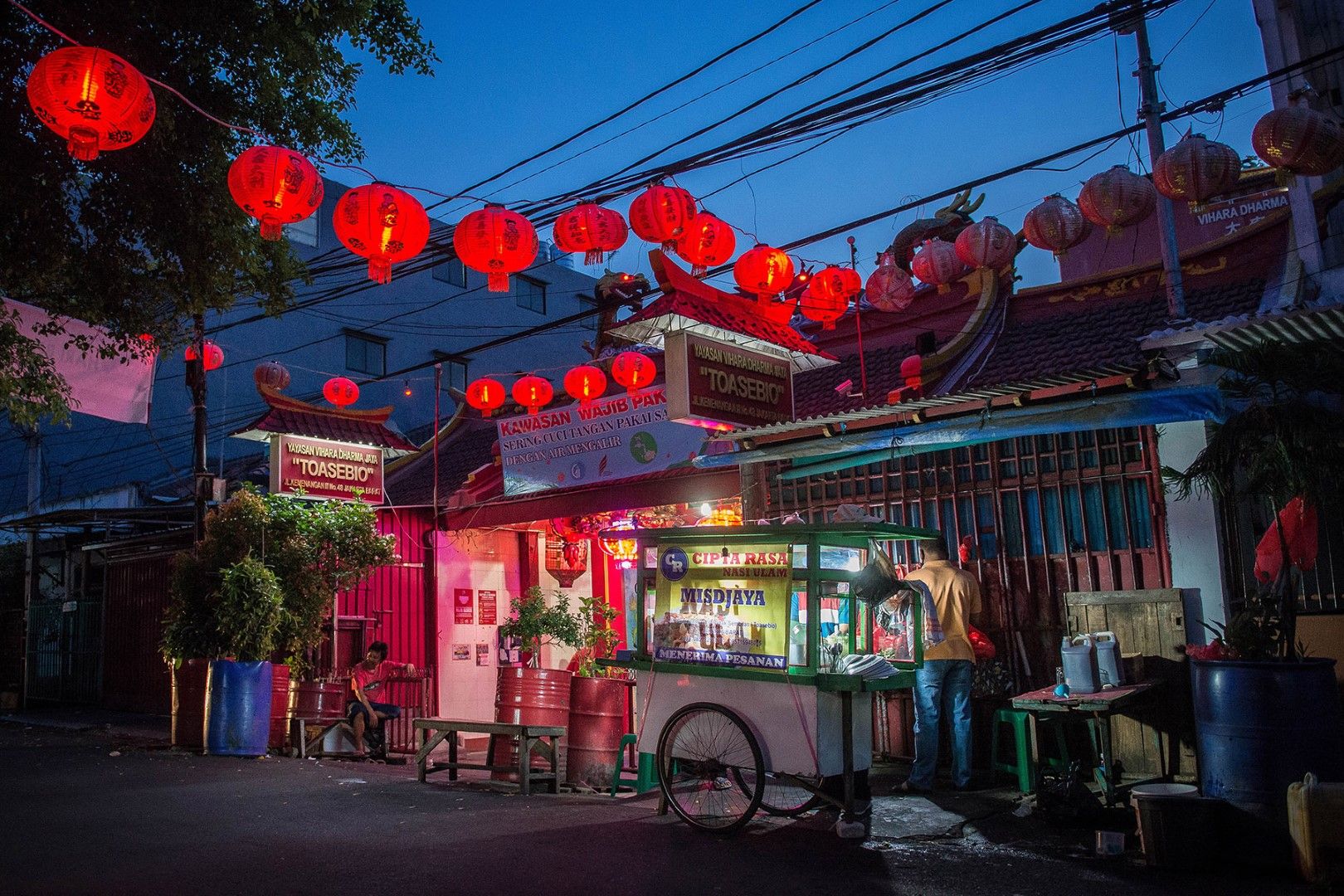
Welcome to Glodok, Indonesia’s biggest and brightest Chinatown! For many years Jakarta’s Chinatown was obscure and somewhat hidden. Chinese in Jakarta kept a low profile. Most of the original architecture was demolished in the anti-communist turmoil that followed the military coup of 1965 when the new nationalist government prohibited the Chinese from openly displaying their culture. Chinese schools and newspapers closed down, and festivals and processions were forbidden. The bright, buzzing neon signs, carved woodwork and anything else that looked distinctly Chinese was removed from Jakarta’s streetscape. Years later in the aftermath of the 1998 Asian Financial Crisis, the Chinese population took another blow, and Chinese stores and houses in Glodok were burned to the ground.
Only recently, after the ban on Chinese cultural elements was lifted and Jakarta’s Chinese roots have slowly but surely started to regrow. Bustling, colourful and unpolished, walking through Jakarta’s Chinatown is truly an immersive experience. Glodok is also where you can find some of the city’s best street food. In this food trail we highlight eight places that make for authentic culinary exploration. Don’t expect fancy dining; Glodok is known for its no-nonsense eateries. But, the dishes are made with love and passion that makes for unexpected cultural conversations.
1. Lao Hoe
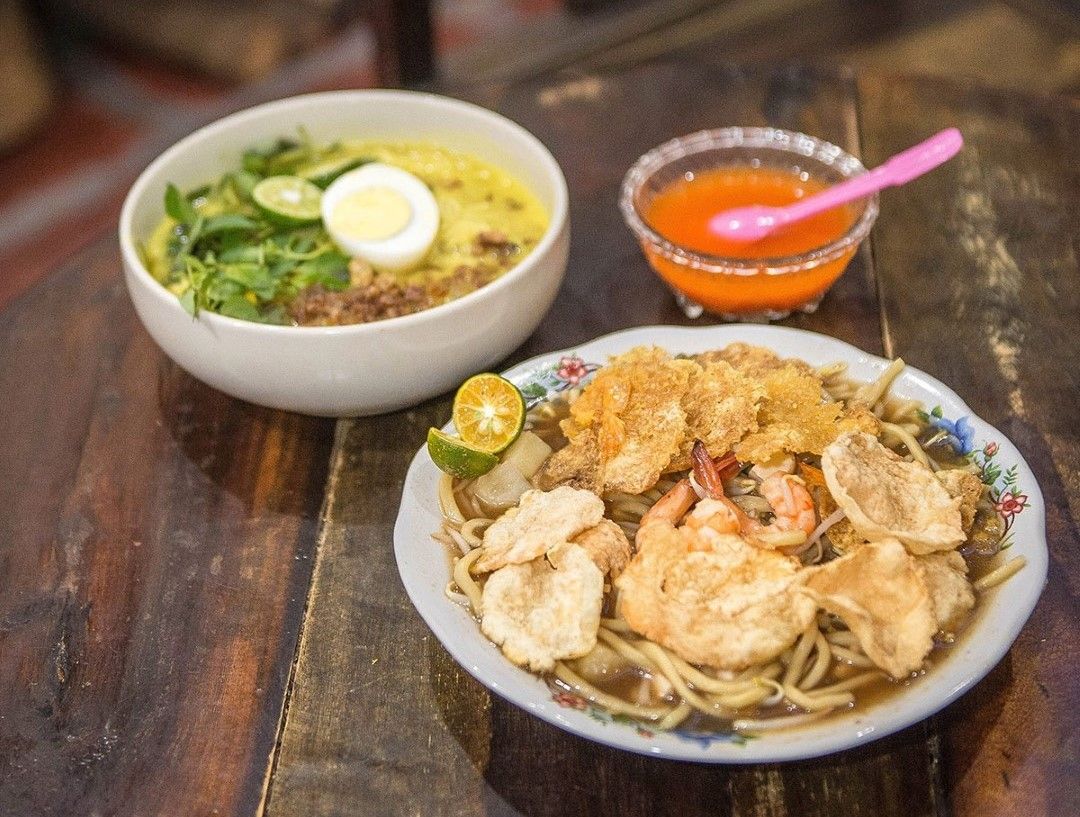
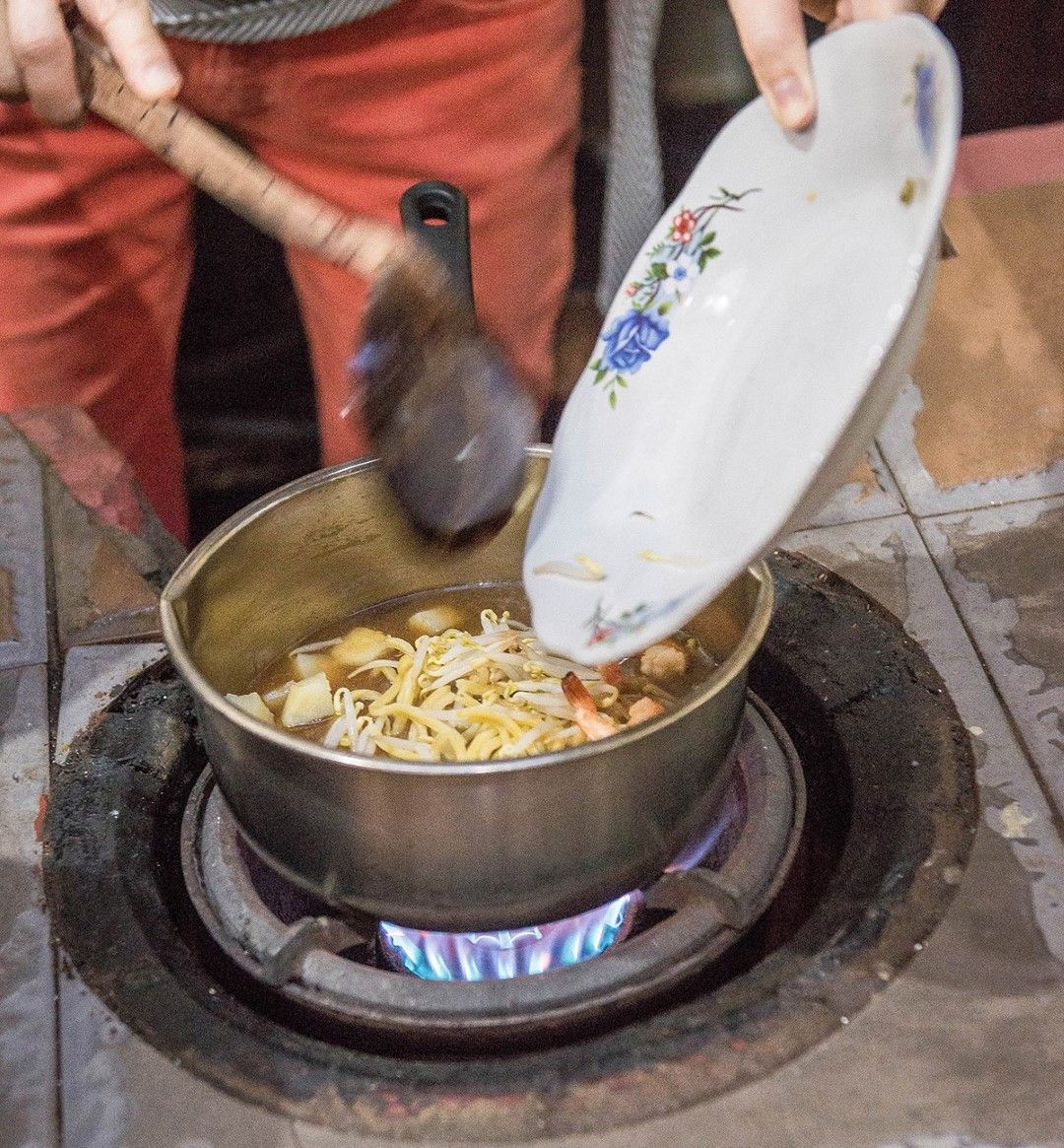
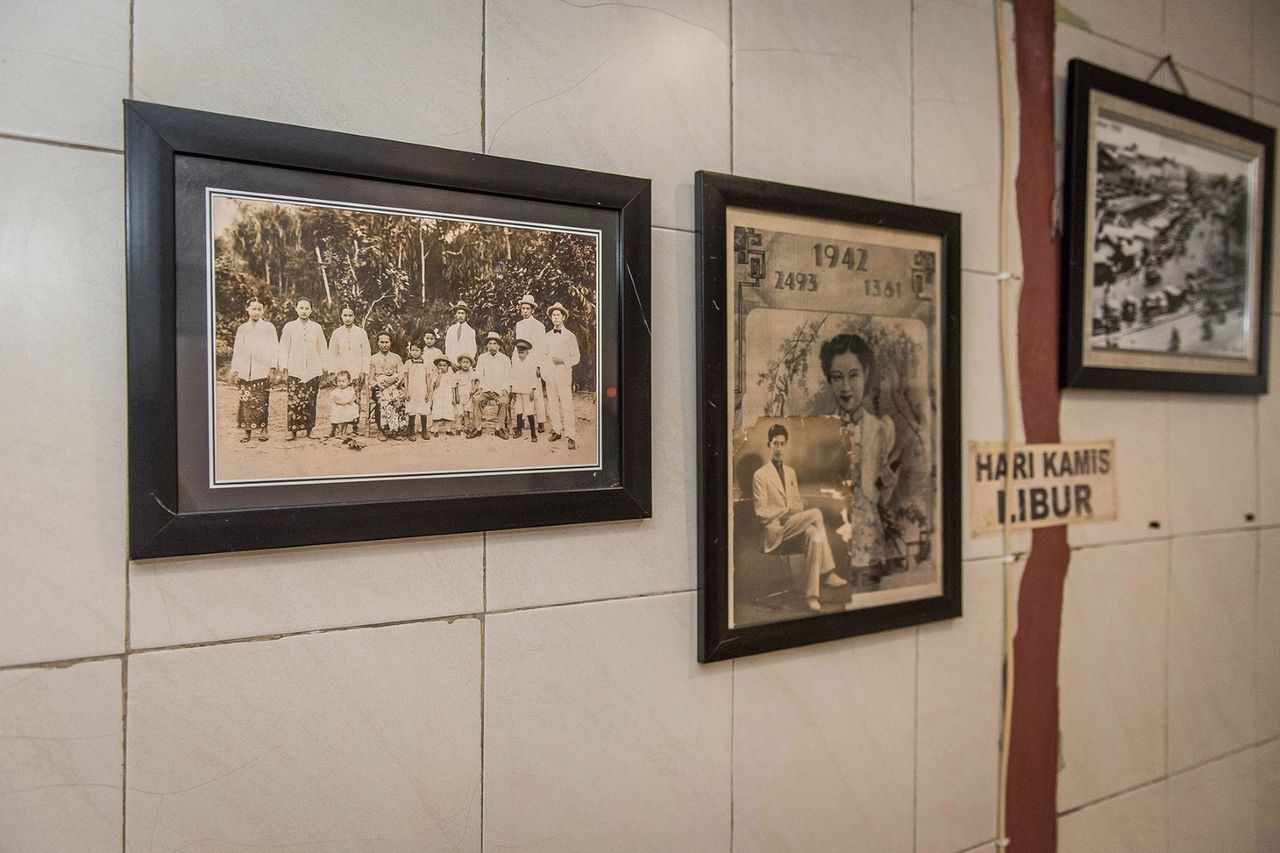
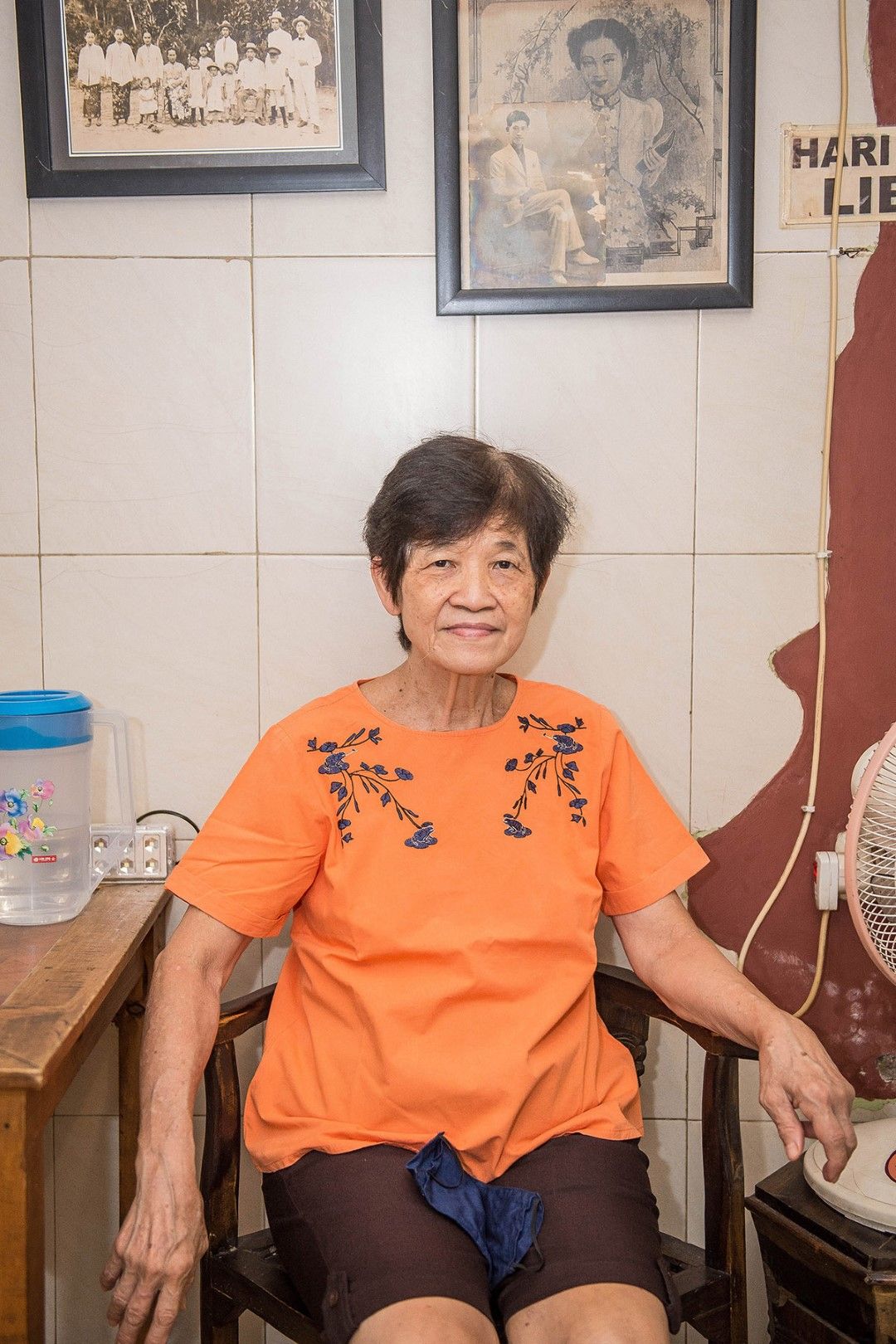
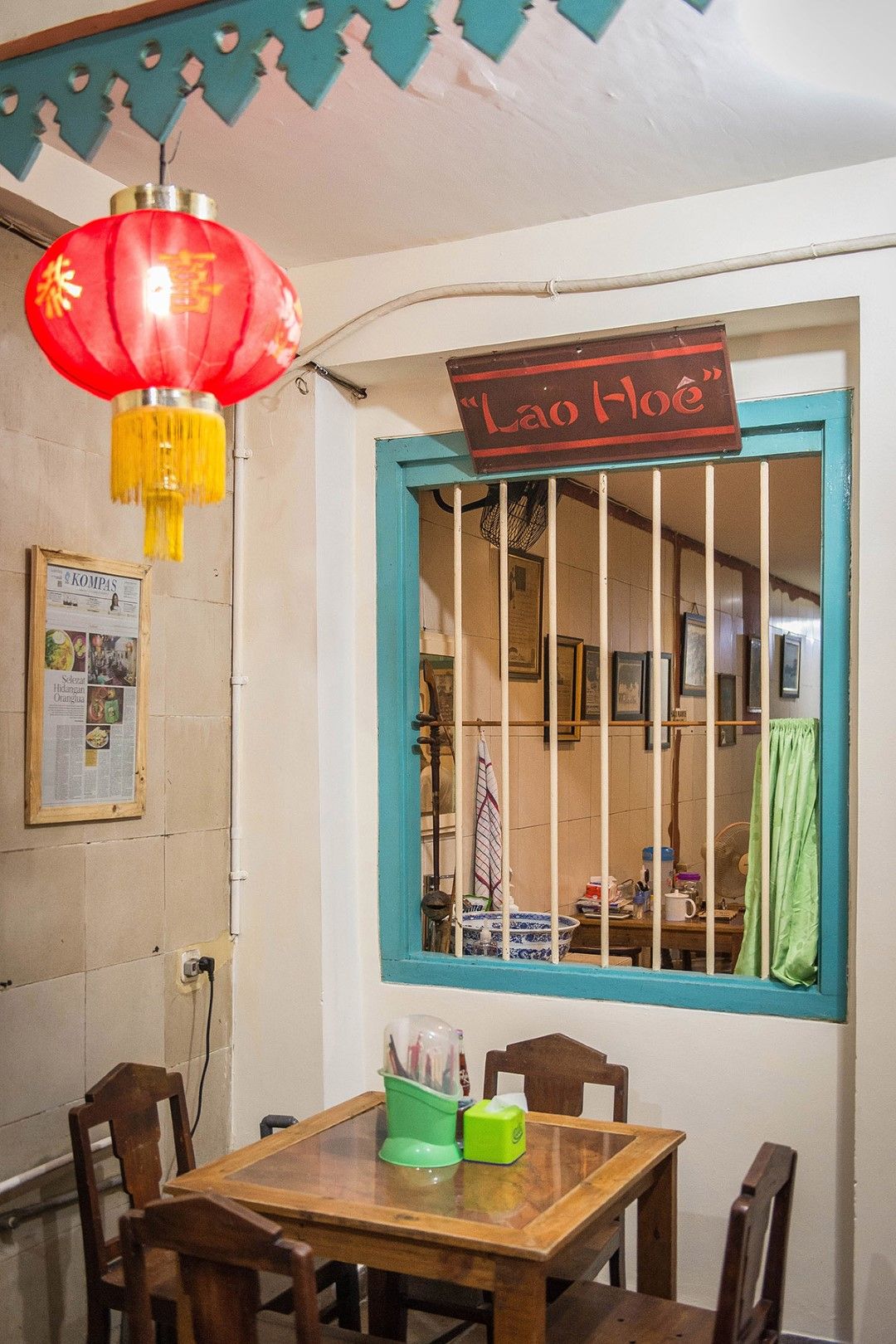
Tempo Doeloe
Ibu Linda is the 4th generation to inherit this house; her family has lived here since 1901. In the 1980s, she started selling homemade dishes in front of the house but quit when it was time to focus on raising a family. After Ibu Linda retired and her kids moved out, she reopened her small restaurant. Two family favourites - Laksa noodle soup and Mie Belitung (prawn noodles) -became the restaurant's signature dishes. "All flavours come from natural products," Ibu Linda says. "We don't use preservatives or additional flavourings in our food."
Even though Lao Hoe literally translates to 'old people', this humble eatery is very popular with the young crowd. The old-school interior is a tempo doeloe ('the old days') throwback. Elegant wooden furniture, charming tiled floors and simple decorations give you a flavour of what daily life back in the 20th century was like for the Tionghoa, the Indo-Chinese.
All flavours come from natural products, no preservatives or additional flavourings have been used in preparing the food.
Our favourites
The place is famous for its Laksa Bogor (Rp. 27.000), thick coconut curry with chicken, glass noodles, egg, and rice cakes topped off with fried shallots. Expect an explosion of flavours; basil is the secret ingredient. Also worth trying is the Mie Belitung (Rp. 27.000) is a rich serving of thick noodles, tofu, crispy peyek udang (deep-fried shrimp crackers), bean sprouts, cucumber, kentang (potato), shrimp and krupuk emping (chips made of a melinjo, a bitter nut).
Tasty fried snacks are also on offer here. Fried cempedak (Rp. 15.000) is a must-try! Cempedak is a type of jackfruit that is quite rare; it can only be found in the market at the beginning of the rainy season. This snack wraps the fruit's soft texture and sweet taste in crunchy flour dough. It goes perfectly with a cup of coffee!
Lao Hoe . Jl. Pancoran No.5/10 . Gang Kalimati, Fri-Wed 7am-5pm . closed on Thurs . +62(0)216393431
2. Nasi Ulam
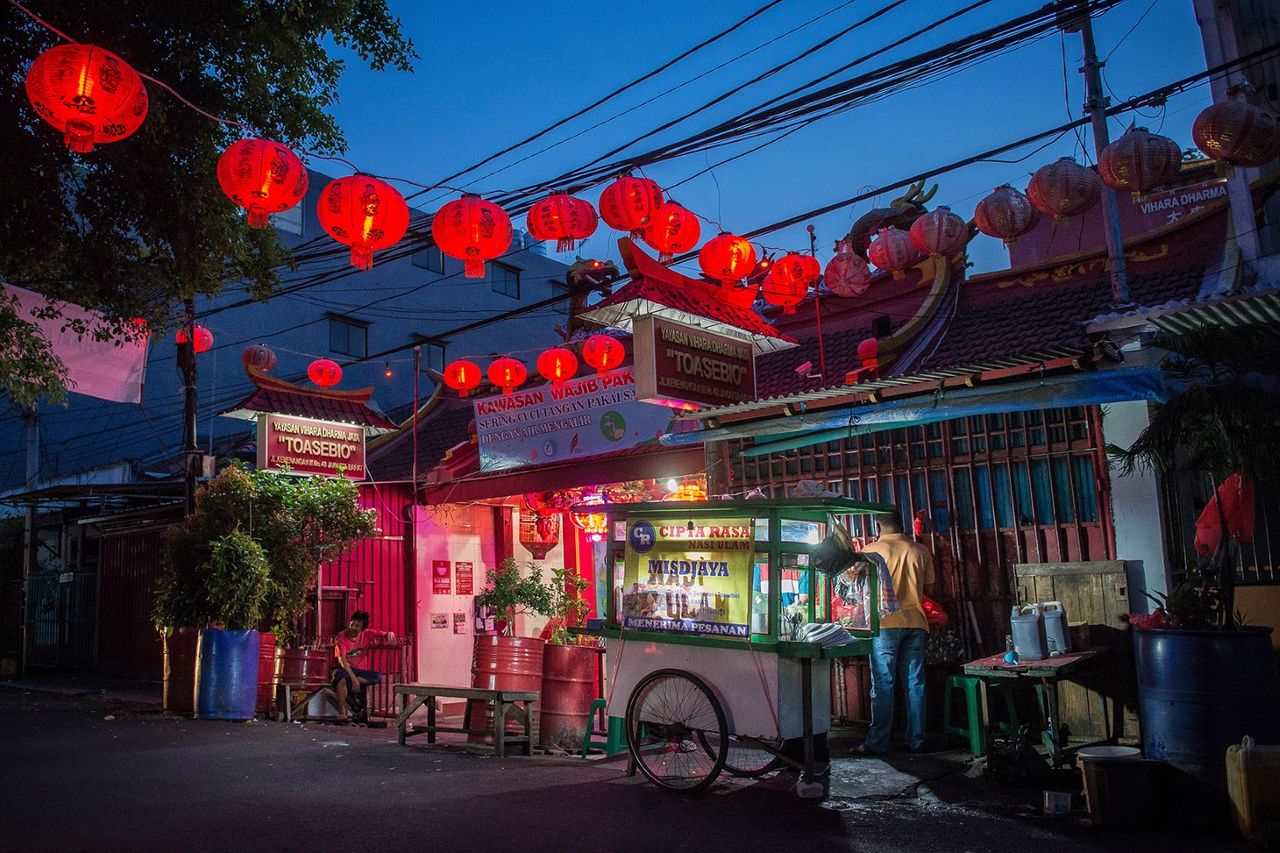
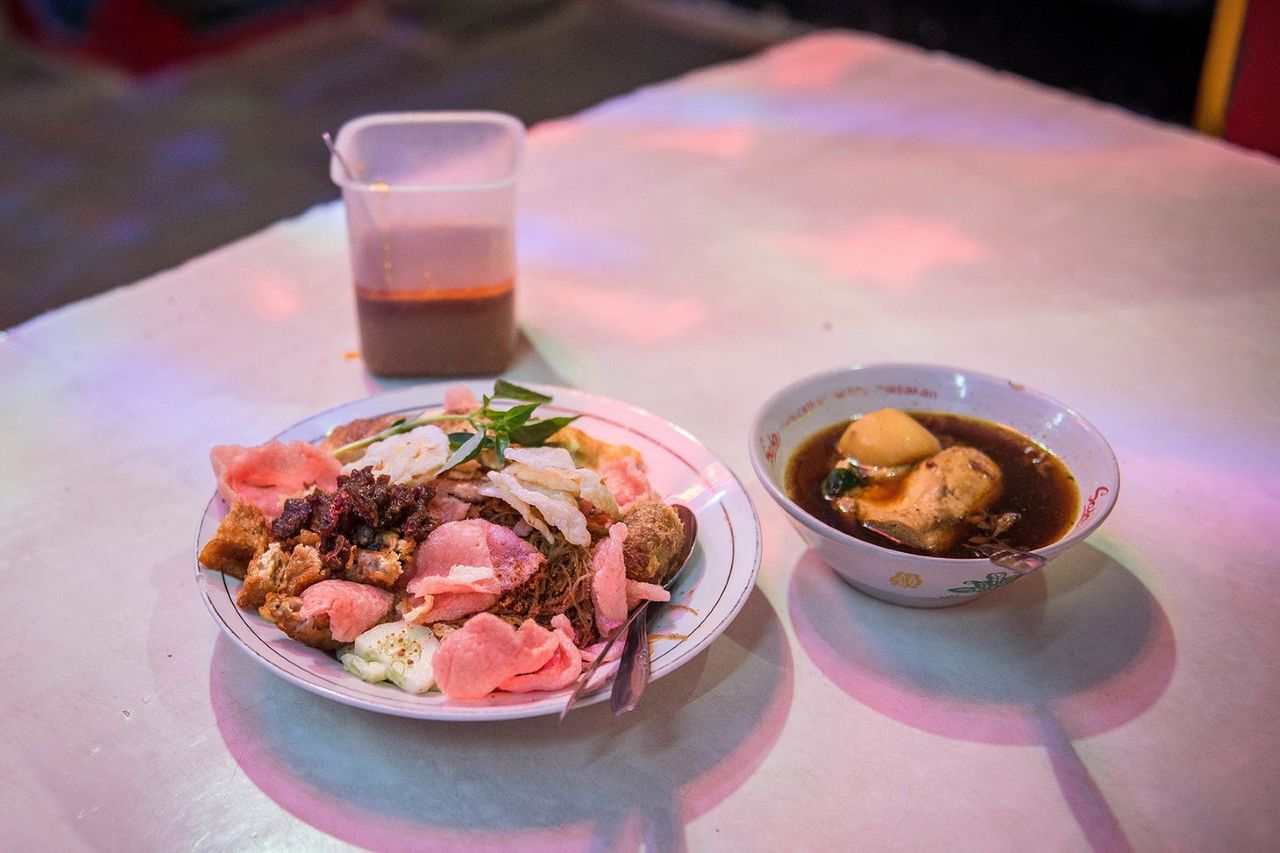
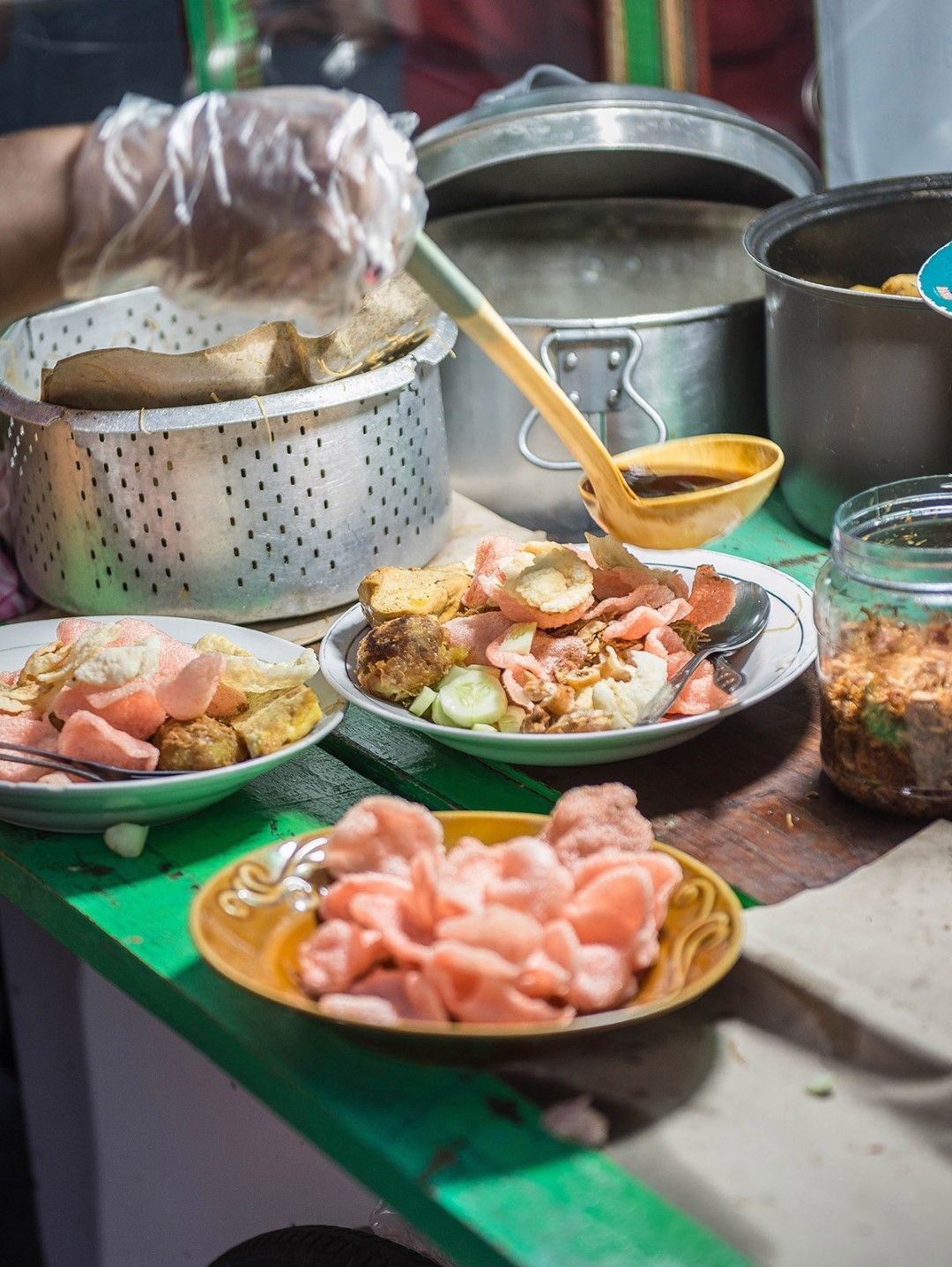
Betawi fusion cuisine
Nasi ulam is a typical betawi fusion dish. Its roots lay in the multi-ethnic potpourri of 17th-century Jakarta, when Malay, Sundanese, Javanese, Balinese, Minangkabau, Bugis, Makassarese, Ambonese, Mardijker, Portuguese, Dutch, Arabic, Chinese and Indian people lived here. Betawi cuisine reflects the foreign culinary traditions of this eclectic ethnic mix.
The base for nasi ulam is nasi lemak, rice cooked in coconut milk. What makes this dish so unique is its hearty stew based on a traditional Dutch soup recipe. It's then garnished with kemangi (herb, chilli, sliced cucumber) and dendeng sapi (beef jerky) and topped off with a sprinkle of peanuts and kerisik (grated coconut). "The secret of the recipe is that the soup has to cook for more than twelve hours," restaurant owner Pak Misdjaya explains. He took over the business from tits original Chinese owner, Cek Lam Seng.
The secret of the recipe is that the soup has to cook for more than twelve hours.
Our favourites
Have your nasi ulam garnished with dendeng (beef jerky) or salty, crunchy squid (Rp. 30.000) for maximum enjoyment. Fun fact: this is allegedly the former Governor of Jakarta's favourite dish.
Nasi Ulam Misdjaya . Jl. Kemenangan III No. 11 . Open daily 4.30am - sold out (Closed on Sun) . +62 856 9185 3154
3. Kuo Tieh Dumplings
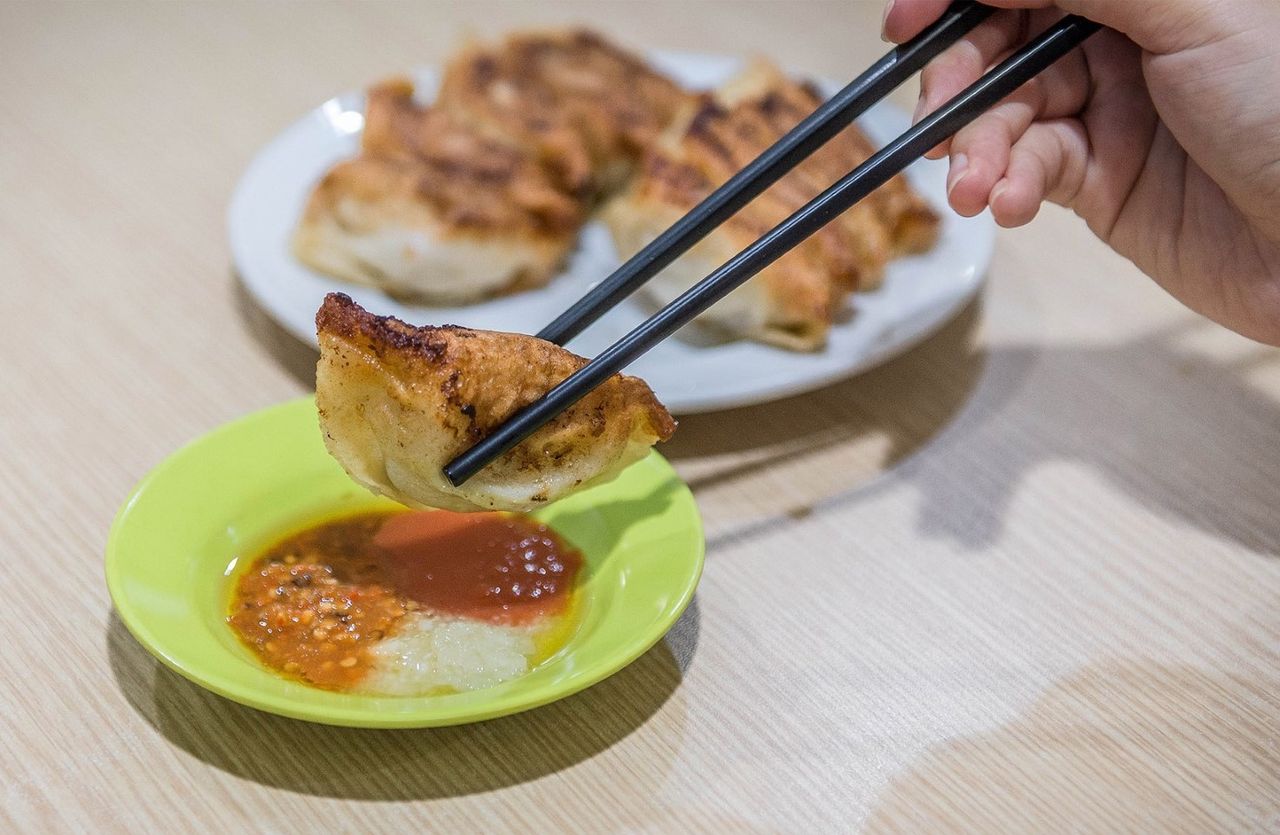
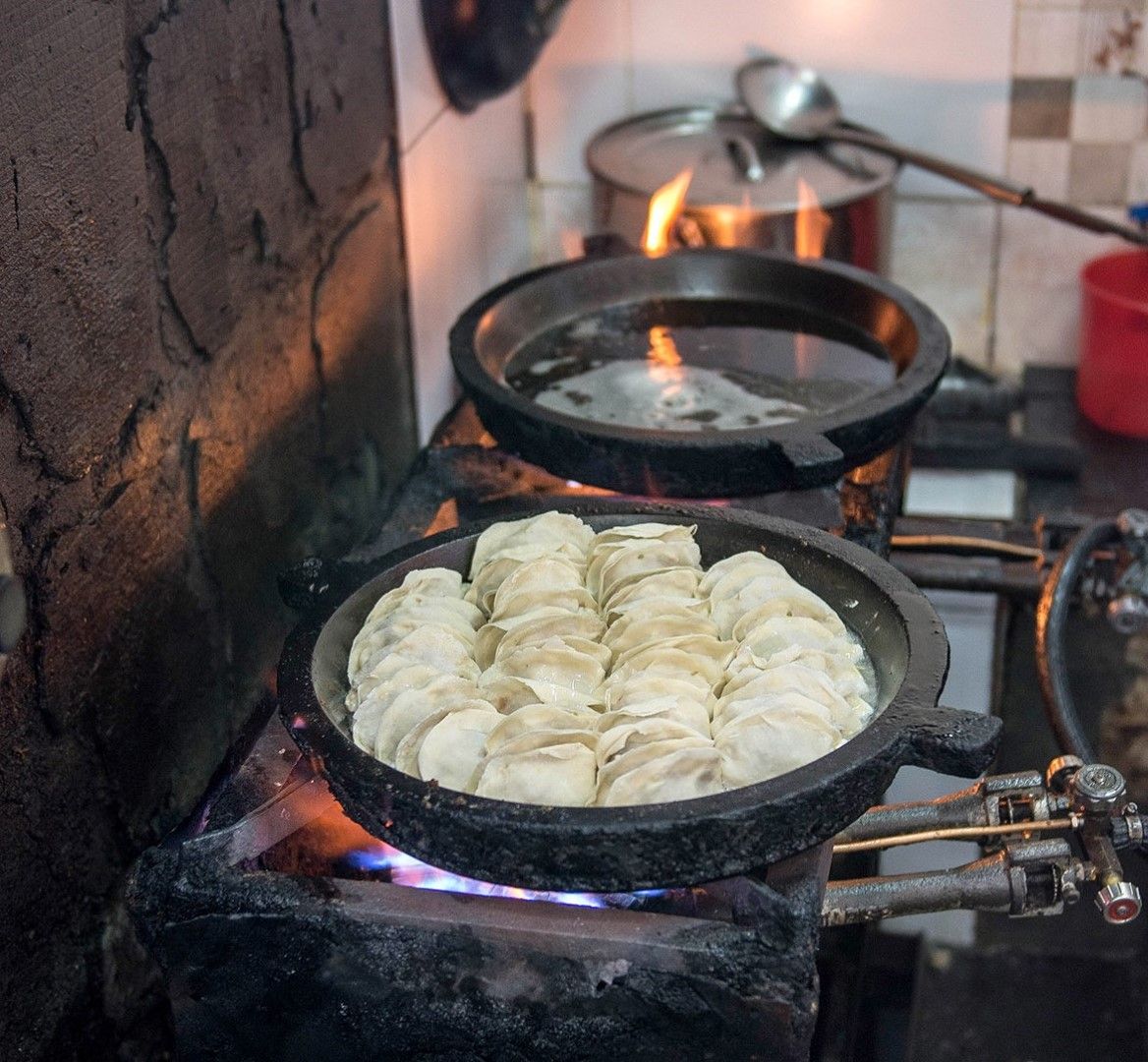
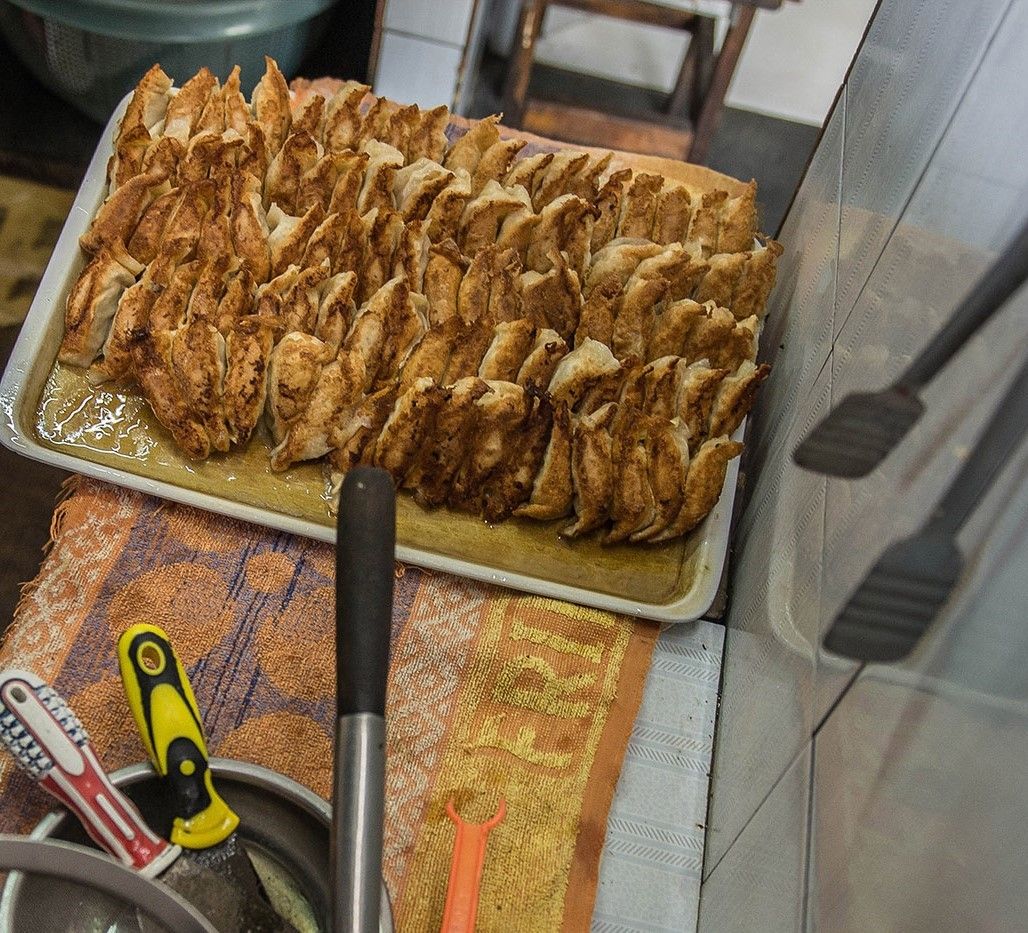
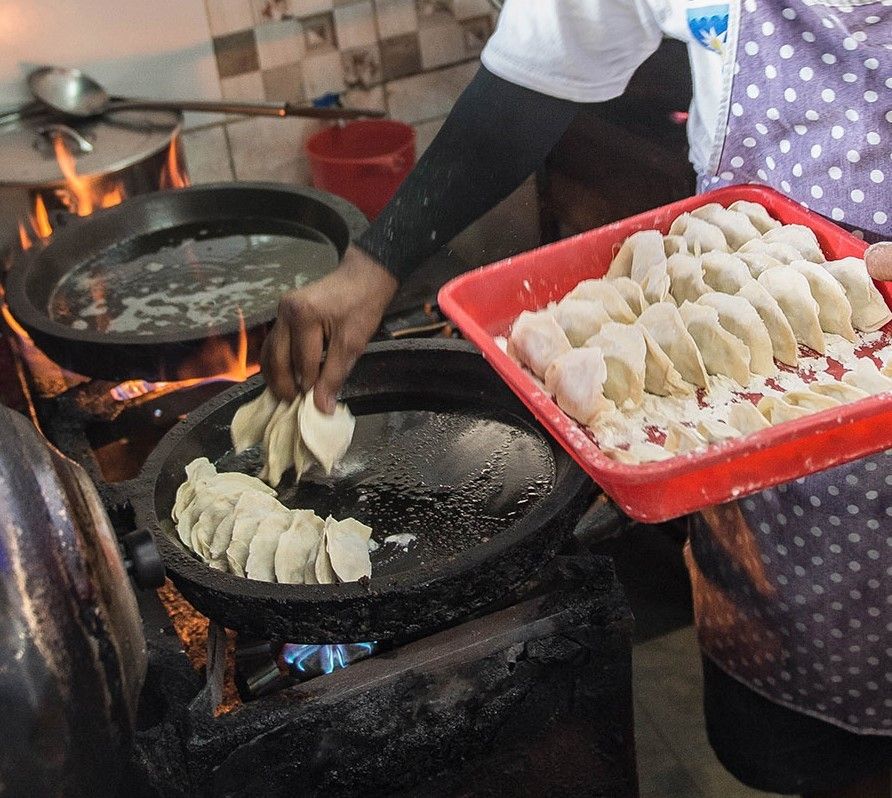
Best dumplings in town
Santung Kuo Tieh serves all the Chinese Indonesian classics, but their dumplings are what locals keep coming back for. Their signature Kuo Tieh pork dumplings can be ordered grilled (IDR 45.000/10 pieces) or fried (IDR 50.000/10 pieces). The dumplings are homemade in front of the restaurant every day; the cooks churn out loads of them at incredible speed.
Santung Kuo Tieh serves all the Chinese Indonesian classics, but their dumplings are what locals keep coming back for.
Old-school Chinese food
In the red brick building at #64, just a few steps away from Santung Kuo Tieh, is Rumah Makan Siauw A Tjiap. This typical Chinese restaurant serves up dishes to share at classic round tables. Their extensive menu offers a wide range of Chinese classics, ikan gurami (gurame fish) (IDR 70.000) is their speciality.
Santung Kuo Tieh . Jl. Pancoran No.68 . Opens daily 9.30am – 9.30pm . +62 812 10051980
4. Kopi Es Tak Kie
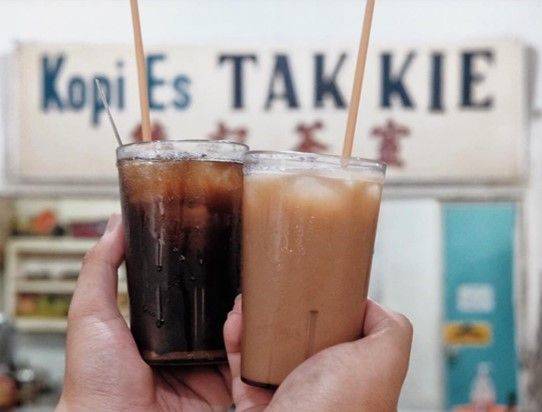
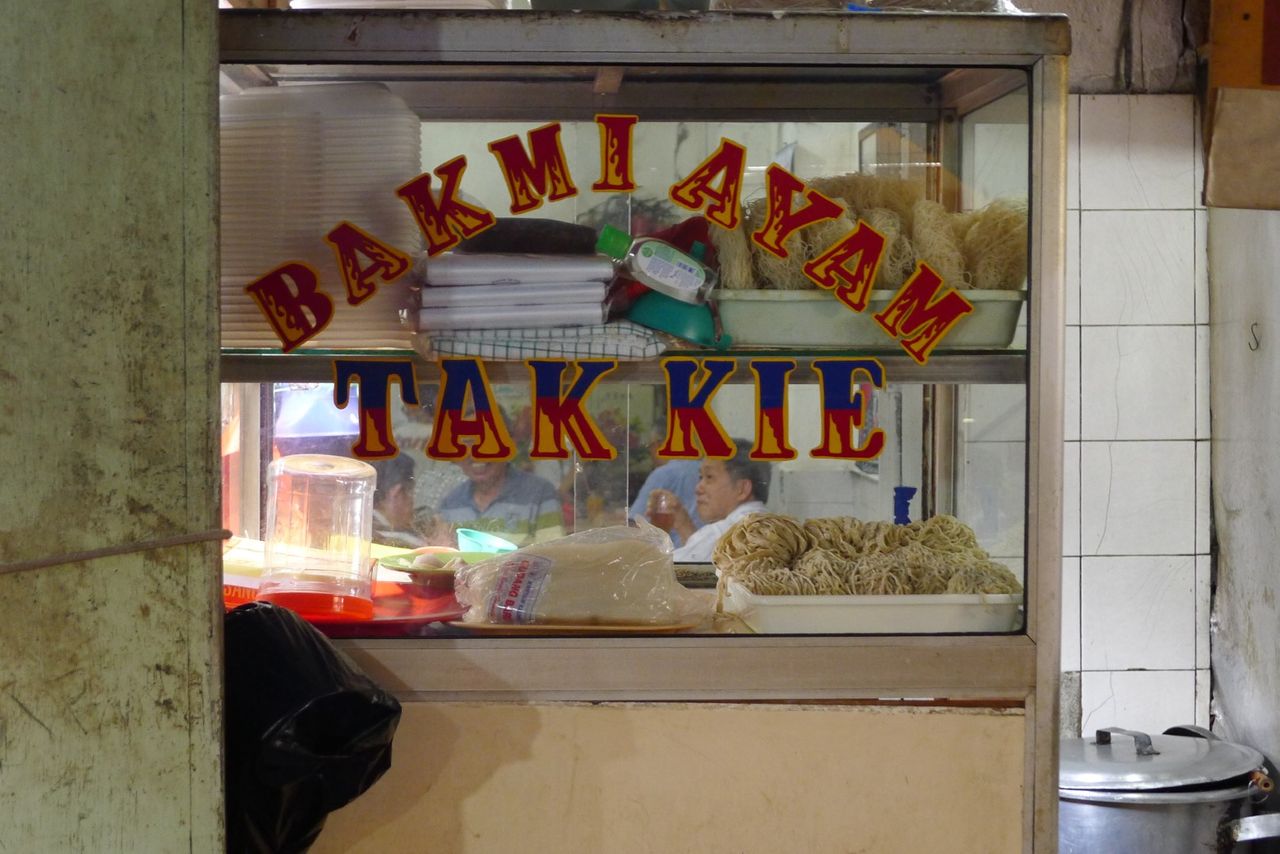
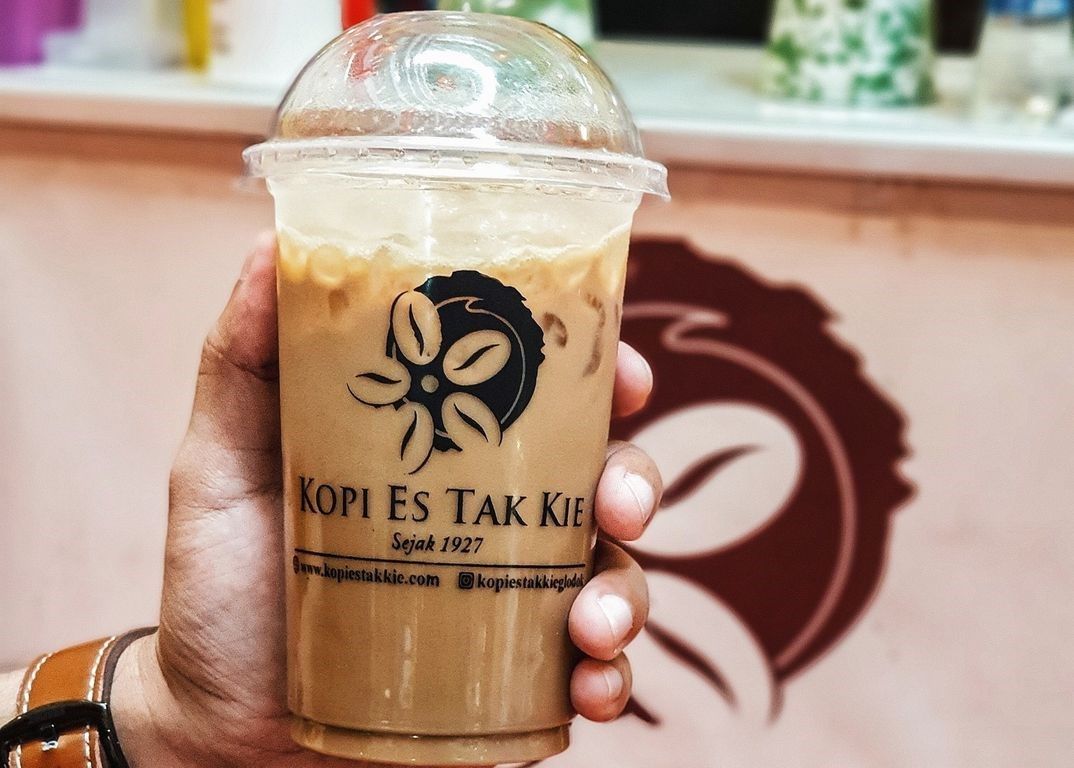
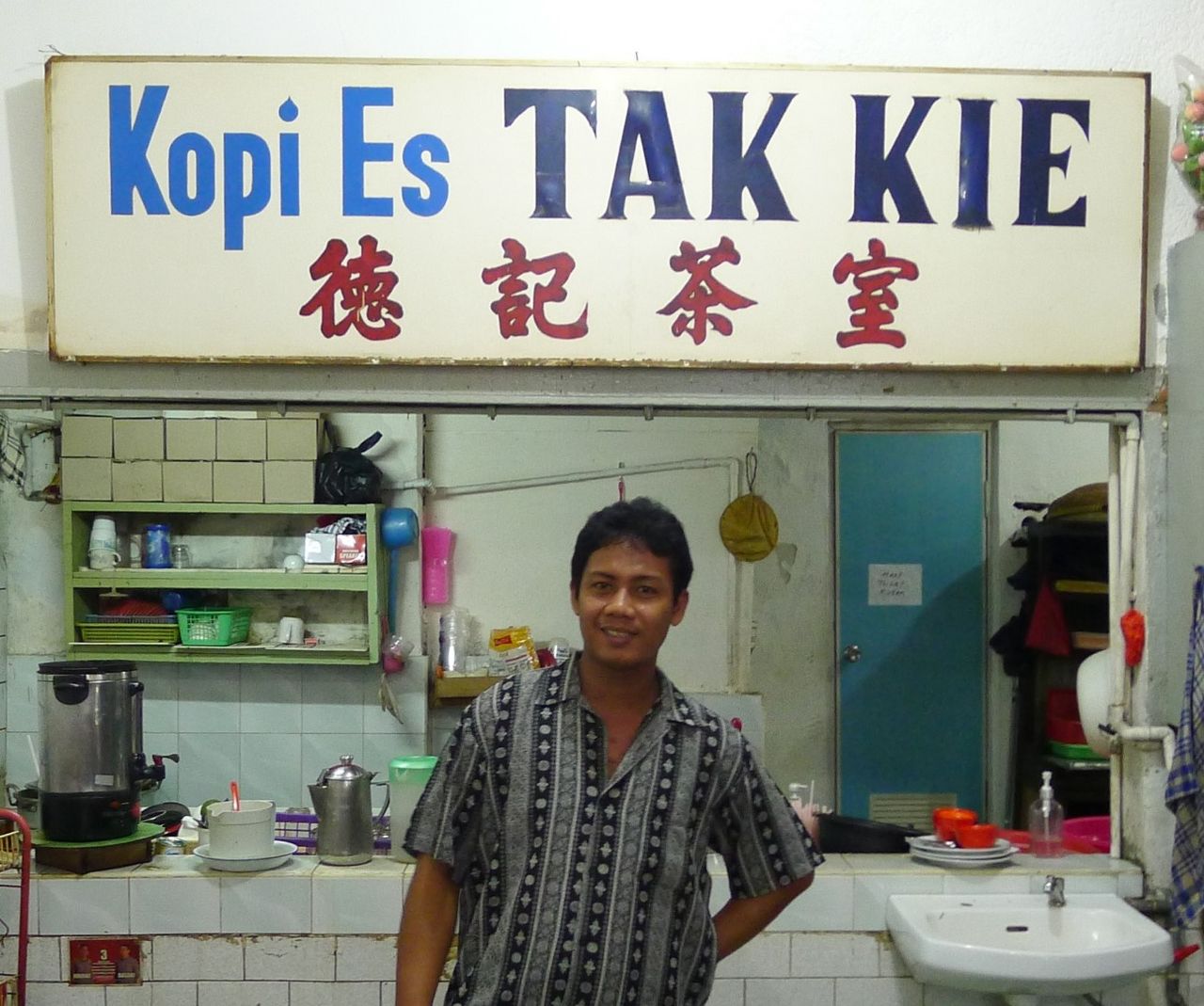
The meaning of life
Tak Kie means 'learn good things from anyone in life', a philosophy that the shop's owner, Mr Liong Tjoen, fully embraces. Since his grandfather started this coffee shop in 1927, Tak Kie has been known for its quality coffee and the genuine kindness of the owners. Don't expect to see doppio macchiatos or caramel lattes on the menu; coffee at Tak Kie is the real deal. Made of the finest coffee beans in Indonesia, at Tak Kie coffee comes in only one flavour: strong!
Tak Kie means 'learn good things from anyone in life'.
Tak tak – extra shot
The local speciality is kopi es (ice coffee), but Tak Tak is also worth a try, with an extra shot of caffeine. A glass of coffee is IDR 22,000. It's perfectly fine to enjoy food that you bought from one of the many stalls that line up at Gang Gloria at Tak Kie, like the famous Soto Betawi Afung (IDR 40.000-50.000).
Kopi Es Tak Kie . Gang Gloria . Opens Mon-Sat 6:30am-2pm (Closed on Sun)
5. Gado Gado Direksi
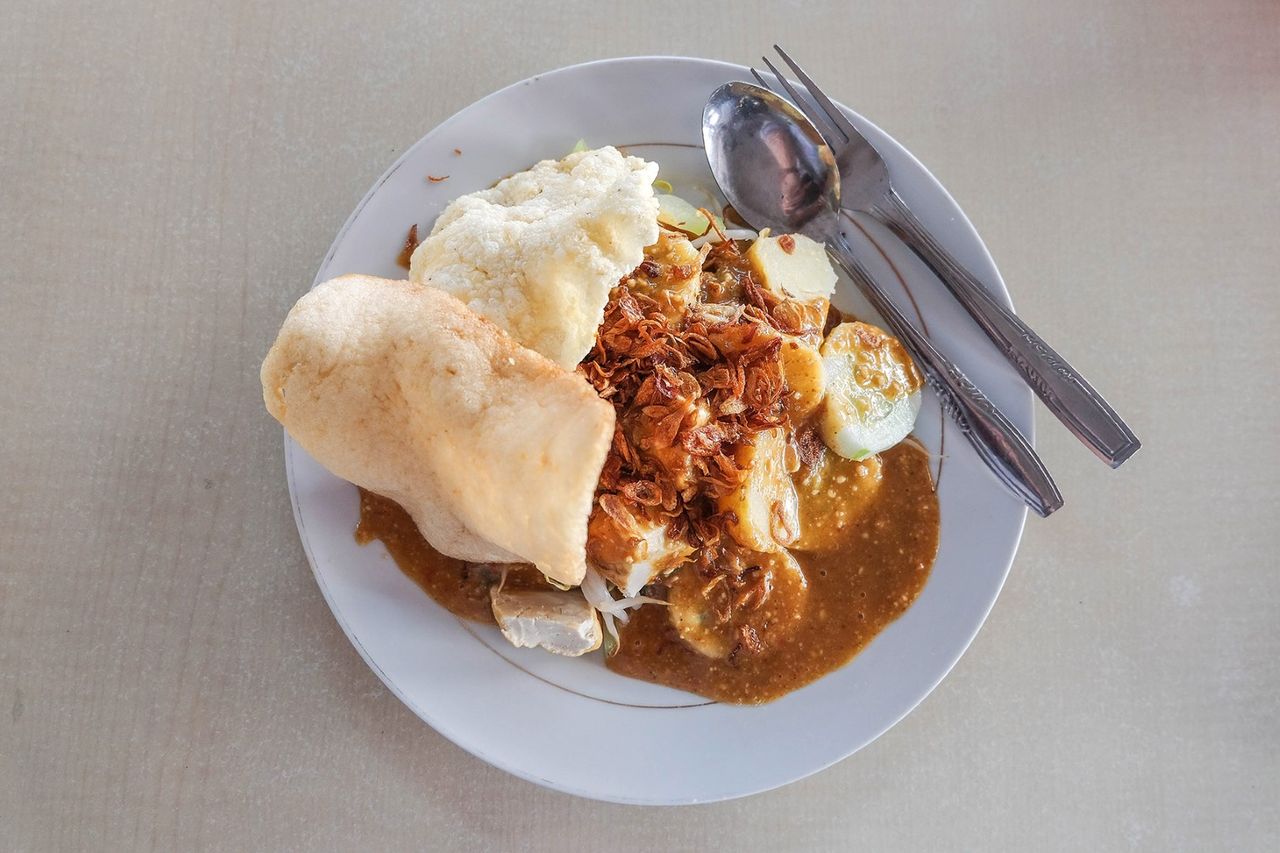
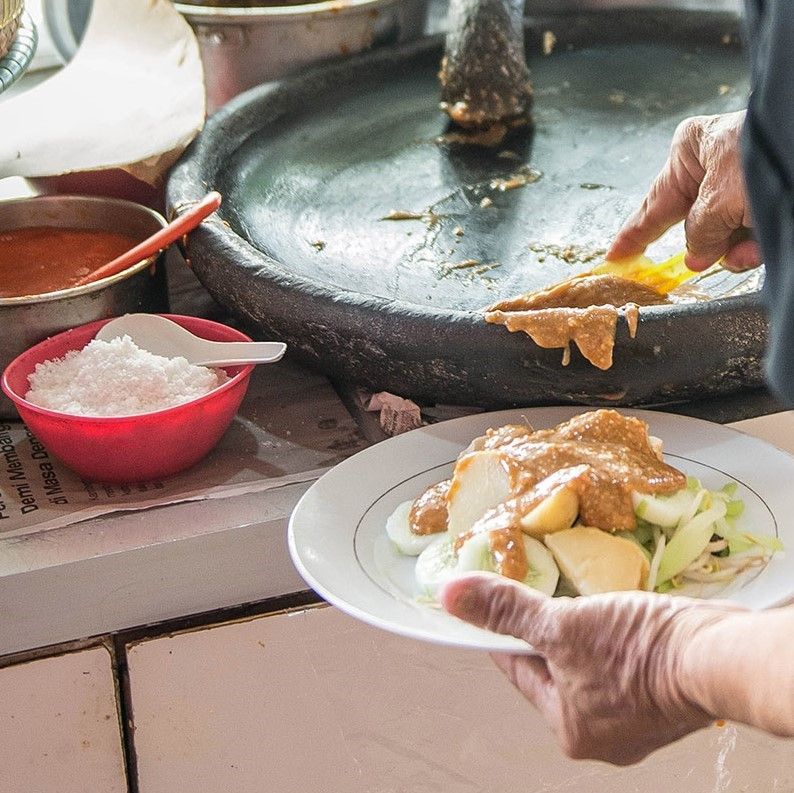
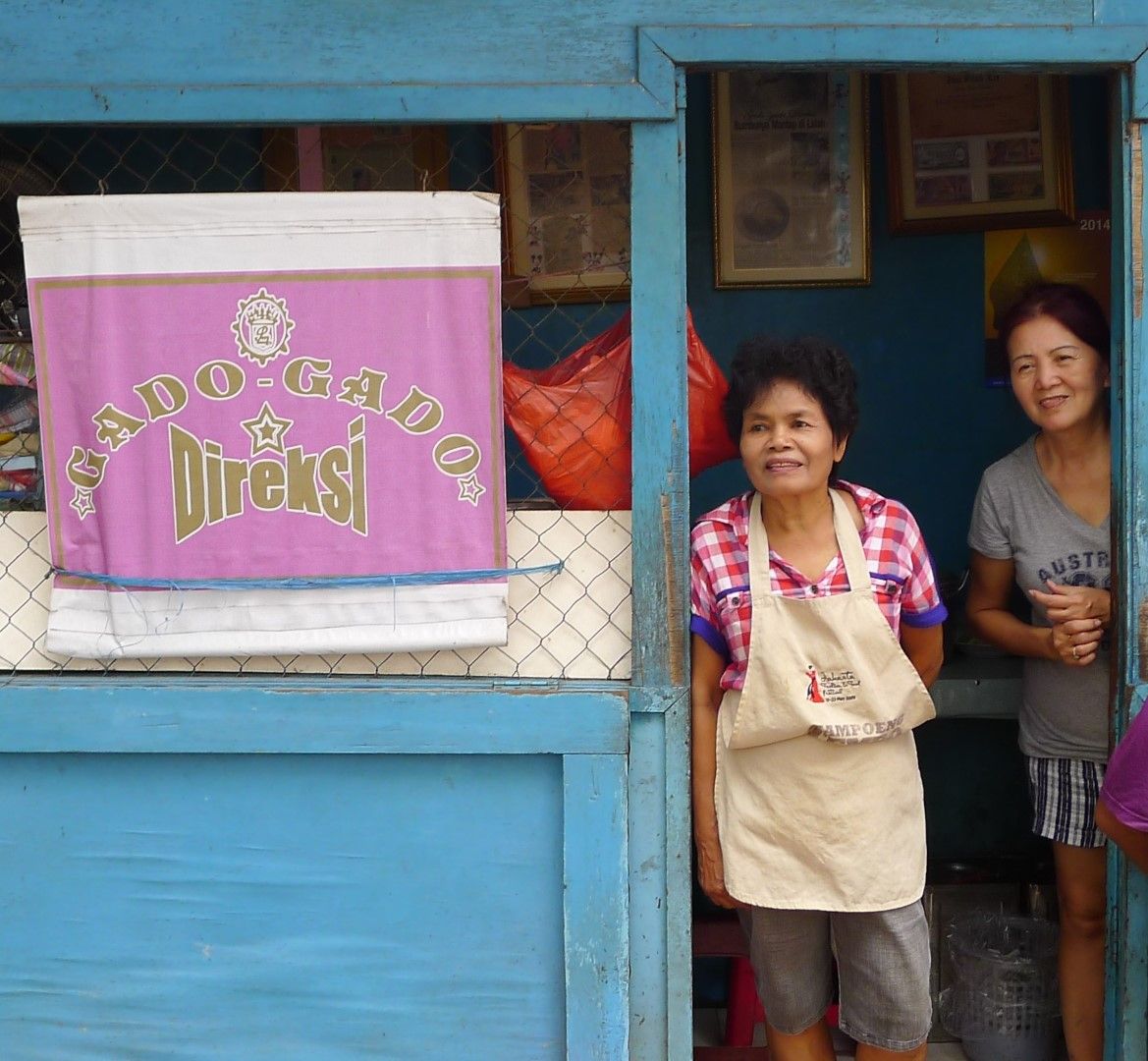
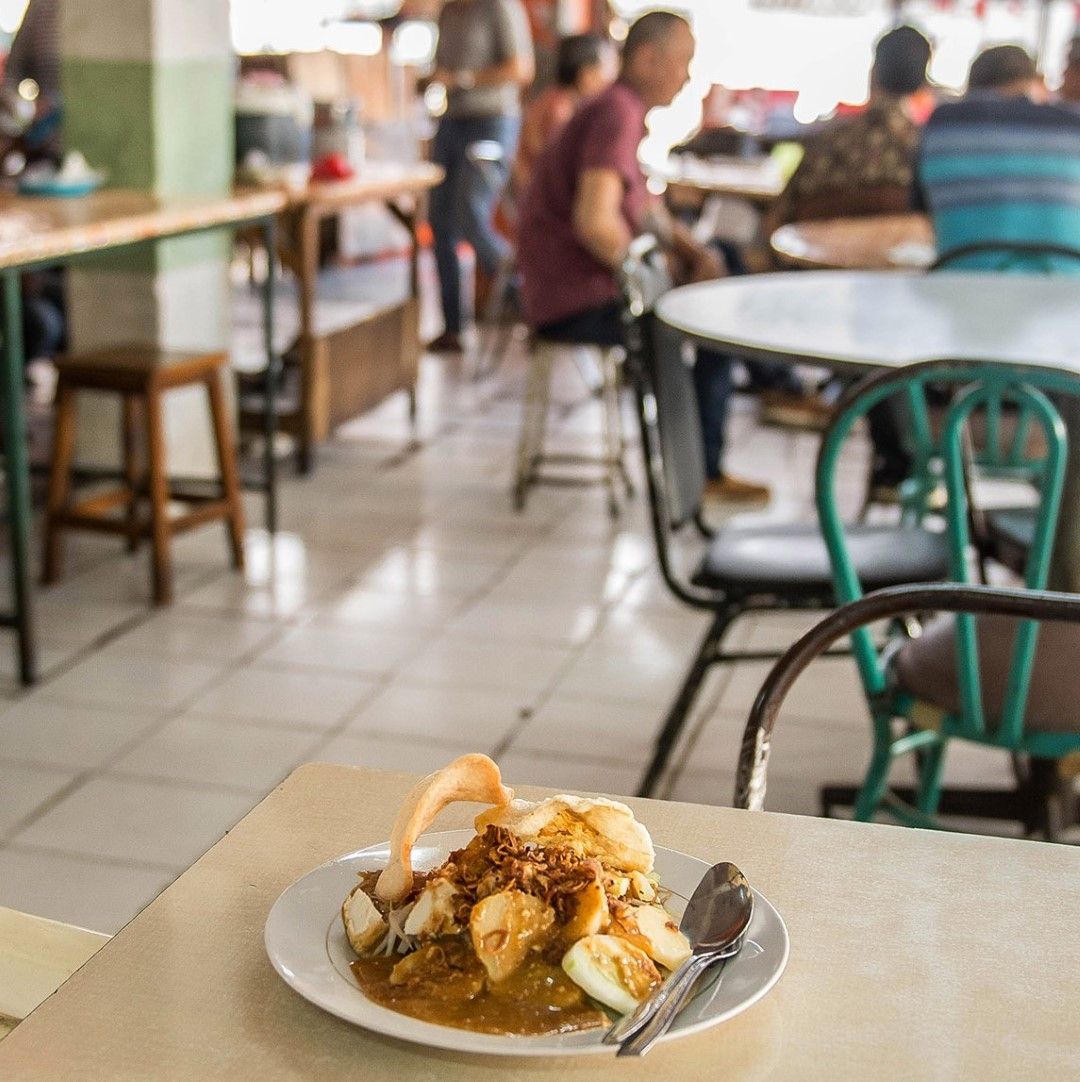
A director’s gado-gado
This small, non-descript stall made of blue wooden boards serves up the best gado-gado in town and—like its name suggests—has attracted a loyal following of office workers in the area. The Si Man Tjaw family has operated the tiny restaurant since 1967. "The secret is in the peanuts we use for the sauce," owner Giok Lee shares. "They're imported from Tuban in Eastern Java, small but with good texture and flavour." She will also proudly tell you about her famous clientele, including former Indonesian President Megawati Soekarno Putri.
The secret is in the peanuts we use for the sauce. They’re imported from Tuban in Eastern Java, small but with good texture and flavour.
Our favourites
It may not be a surprise that it's the gado-gado you come here for! A plate of steamed fresh green vegetables and rice cake served with Lee's famous peanut sauce, rice crackers, and sambal costs just IDR 40,000.
If you come here after 2pm, there's a high chance that the gado-gado is already sold out. You can, however, hop over to the shop's neighbour, Mie Kangkung Sio May, which is also a firm local favourite. Their mie kangkung, vegetable noodle soup with water spinach (IDR 25,000), is delicious.
Gado Gado Direksi . Jl. Pintu Besar Selatan 2/16 . Opens daily 9:30am – 4:30pm
6. Warteg Gang Mangga
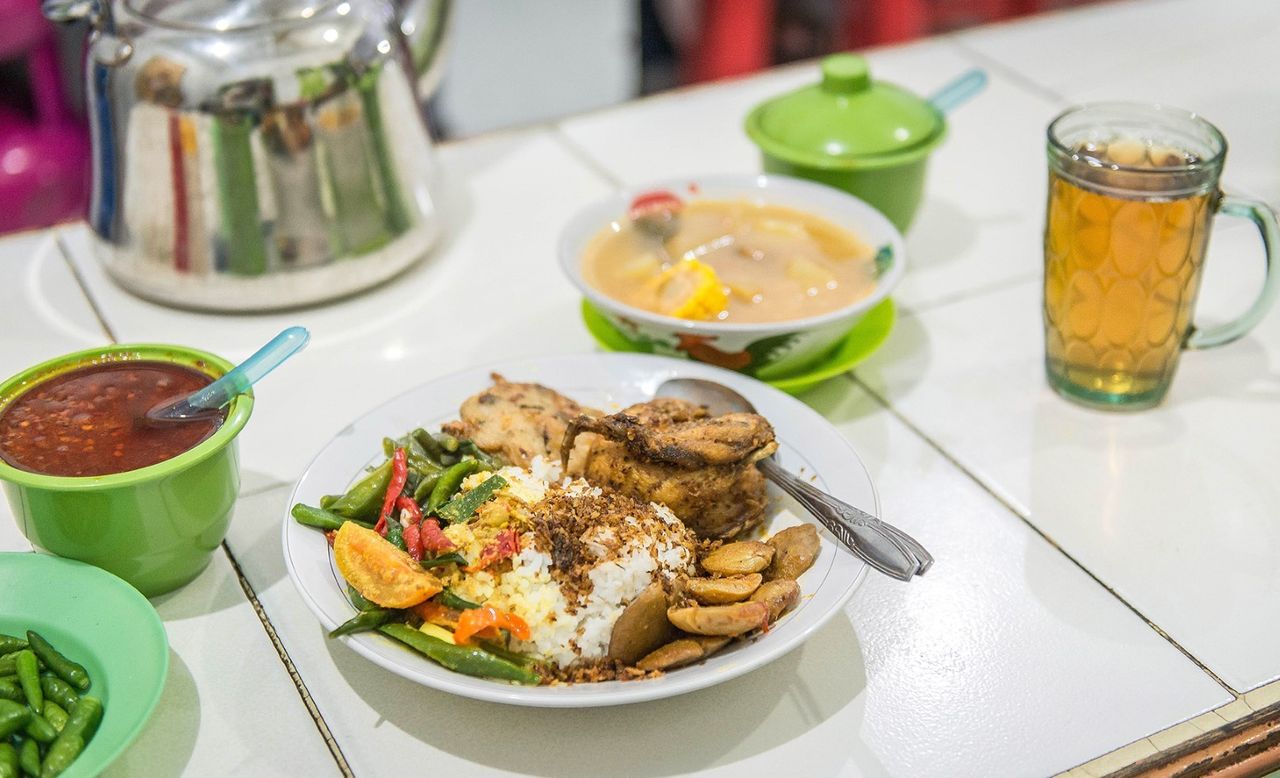
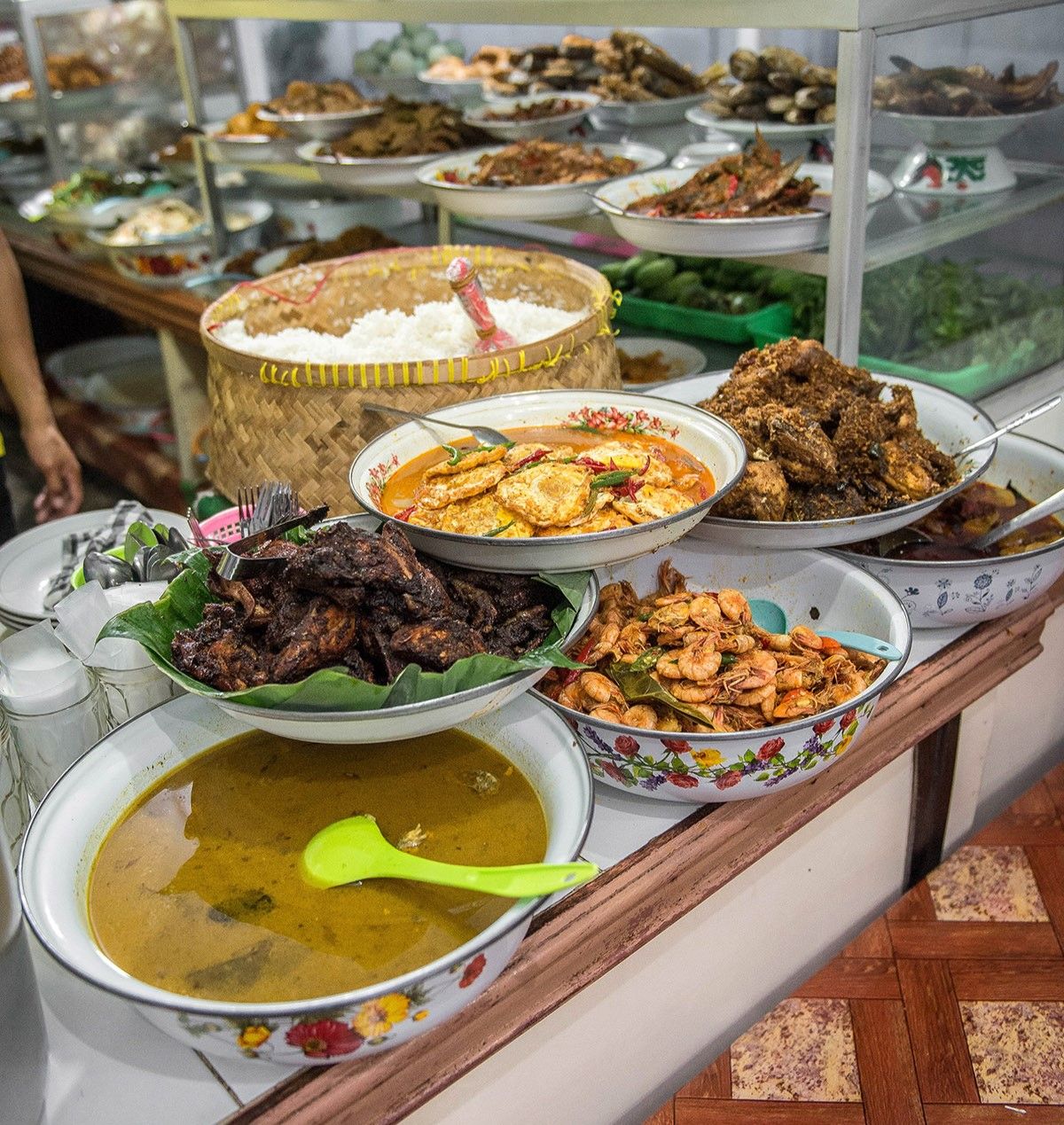
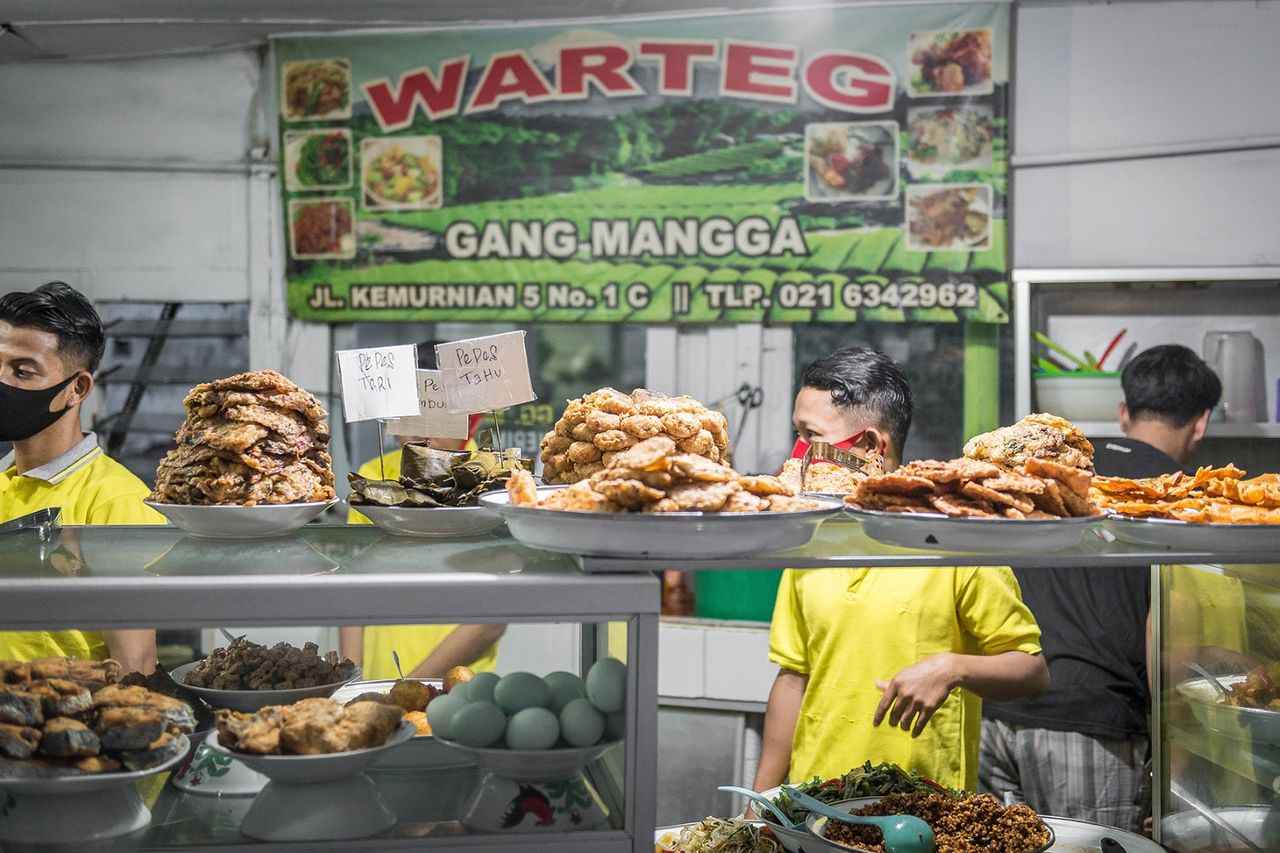
Help yourself
A warteg (Javanese self-service tavern) is where locals come to eat comfort food for breakfast, lunch and dinner at affordable prices. Pick your favourite dishes and calculate the price later. Expect to spend around Rp. 25,000 here. Warteg Gang Mangga is one of the most legendary wartegs in Jakarta. Open 24/7, over 50 (!) dishes made with fresh ingredients are on offer. The place is always packed with both locals and curious travellers.
Our favourites
Try the sambal pete (stink bean chilli paste) here; it offers a crunchy texture with a unique but 'controversial' taste that you’ll either love or hate.
Warteg Gang Mangga . Jl. Kemurnian V No.1C . Open 24hrs . +6221 690 6374/ +6221 6928758
7. Wong Fu Kie
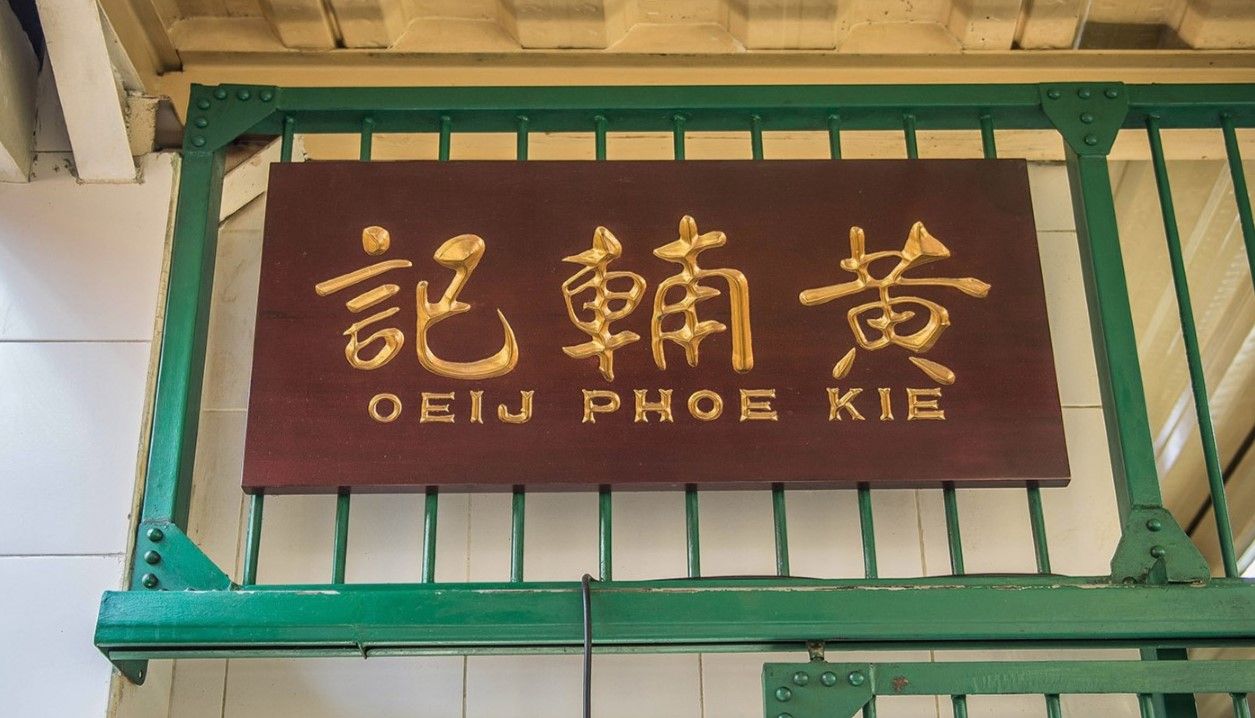
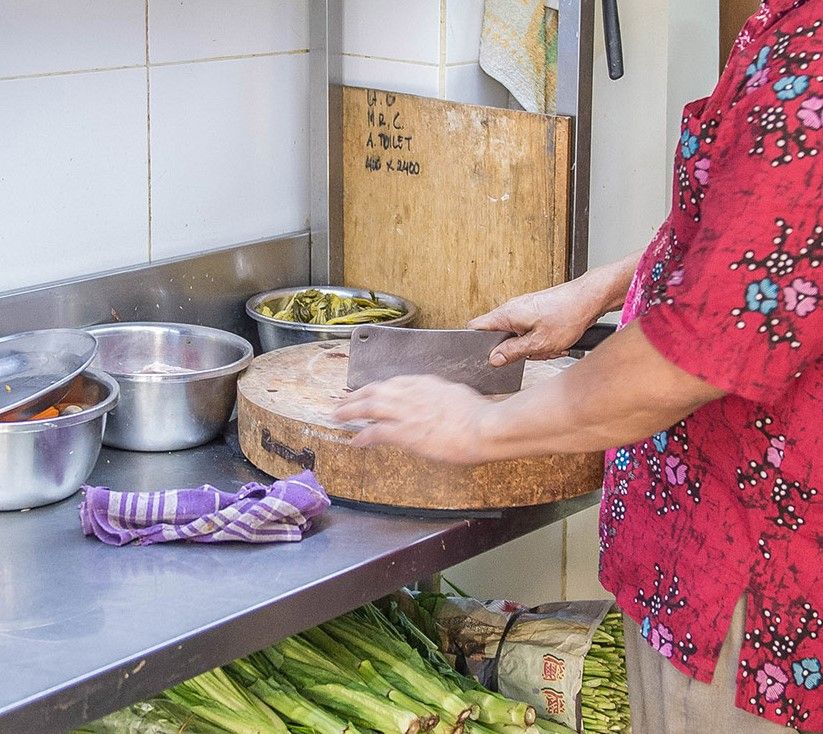
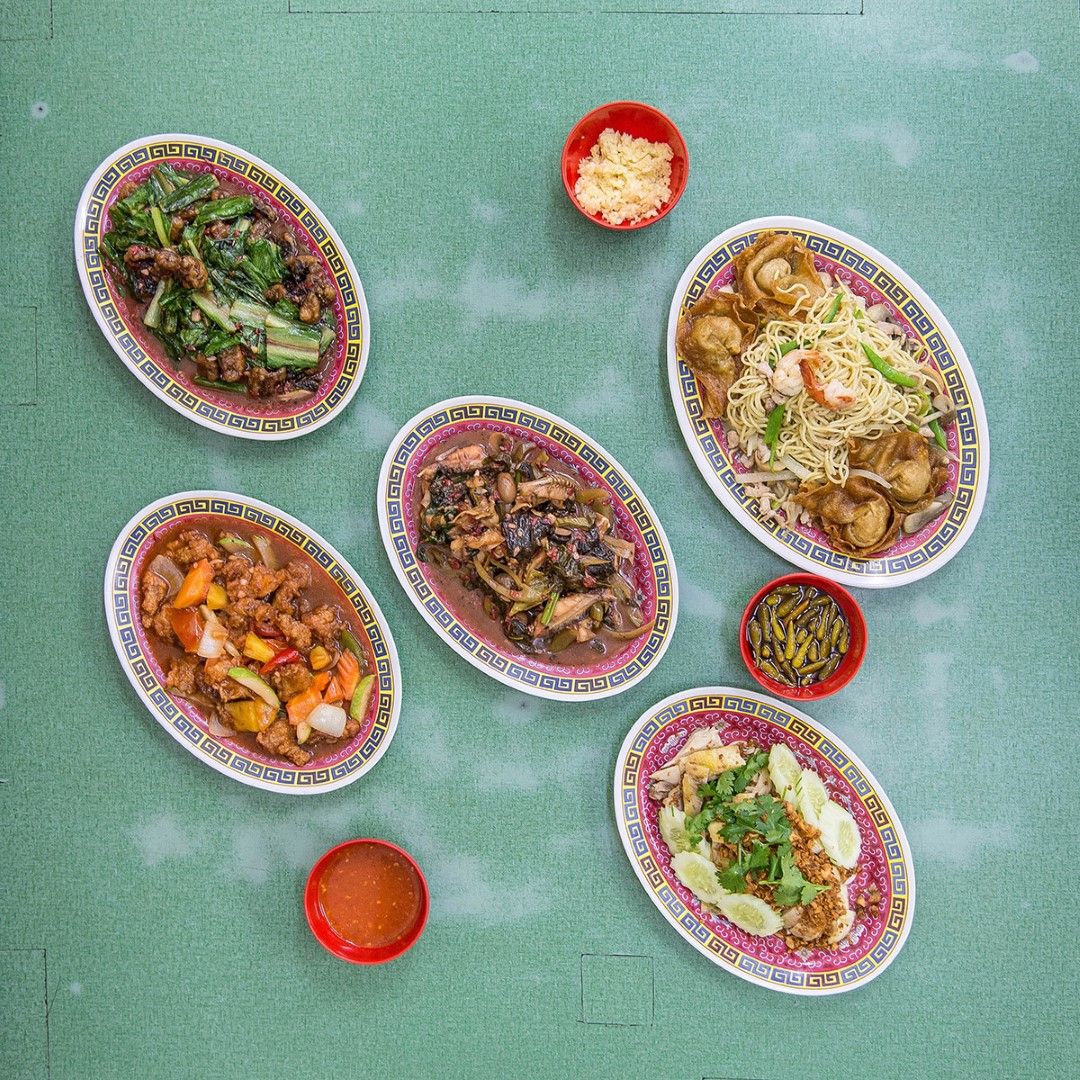
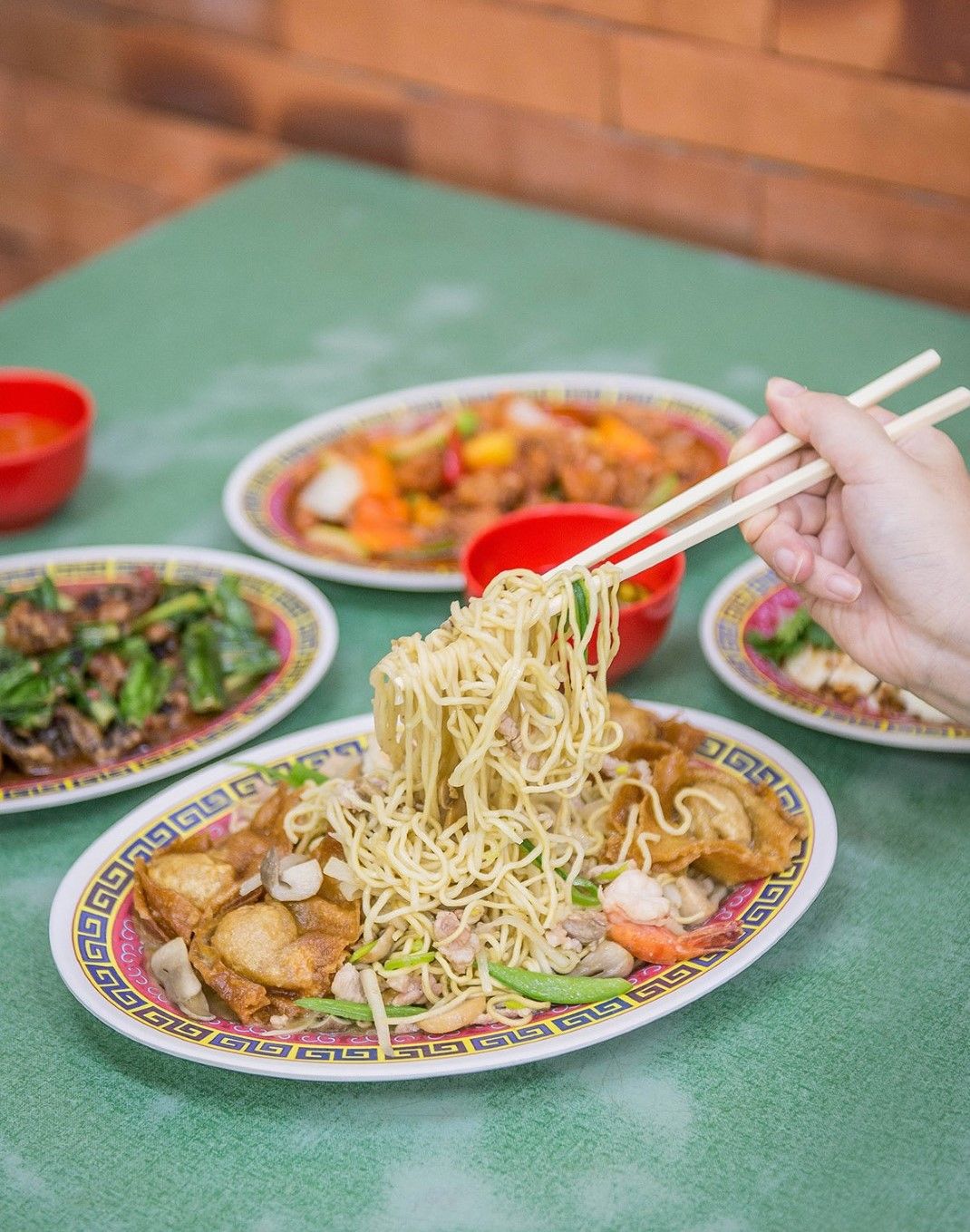
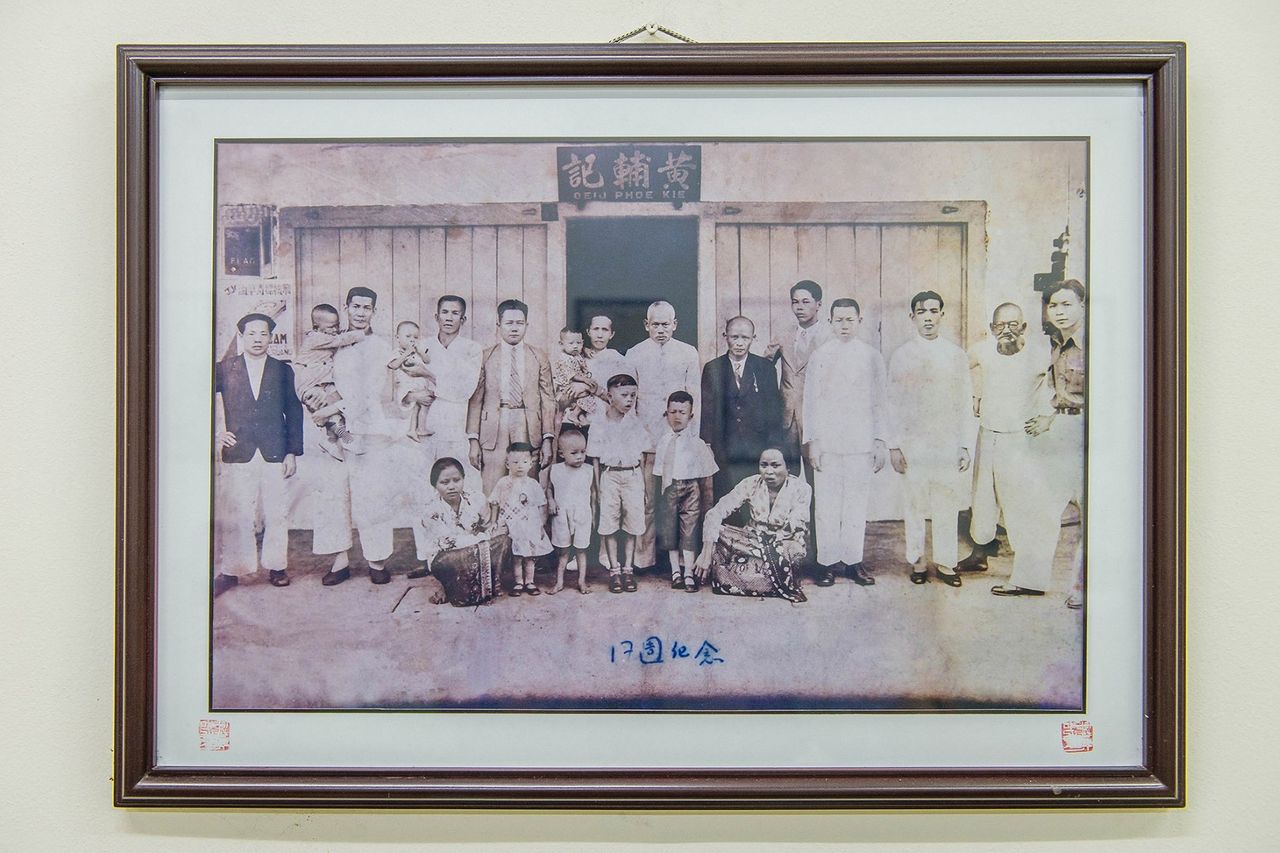
Original flavours
Established in 1925, this restaurant serves authentic Hakka food. Unlike many Chinese restaurants in Indonesia, none of the dishes here have been adapted to the local cuisine. Wong Fu Kie is a hidden gem - literally! You'll have to venture out to the alley behind the busy Chinatown market to find it. It was originally located on the main street of Perniagaan. Around the late 60s, when Ibu Wong Tjai Jin, Pak Tjokro's mother, took over, the restaurant moved to its current location. Pak Tjokro, the grandson of the late Pak Wong Fu Kie, manages Wong Fu Kie.
Our favourites
Wong Fu Kie's signature dish is Mun Kiaw Mien, noodles with shrimp, pork and fried wonton soaked in a tasty thick gravy broth. Their Hainan chicken is also a must-order dish; locals say it's the best in town. They only use free-range chicken, which is tastier and has a better texture, and prepare it according to a secret family recipe. This dish is served with fried garlic, sesame oil, and coriander garnish to enrich its flavour.
A priceless experience
They don't put prices on the menu here, the staff adjusts the portion depending on the number of people at the table and the number of dishes ordered. Expect to spend approximately IDR 75,000 per person. Be sure to ask Pak Tjokro for suggestions on how to pair the dishes you ordered for maximum enjoyment!
Wong Fu Kie . Jl. Perniagaan Timur 2 no. 22, Pasar Pagi Lama . Open daily 8am-5pm - +6221 690 6374/ +6221 6928758
8. Pantjoran Tea House
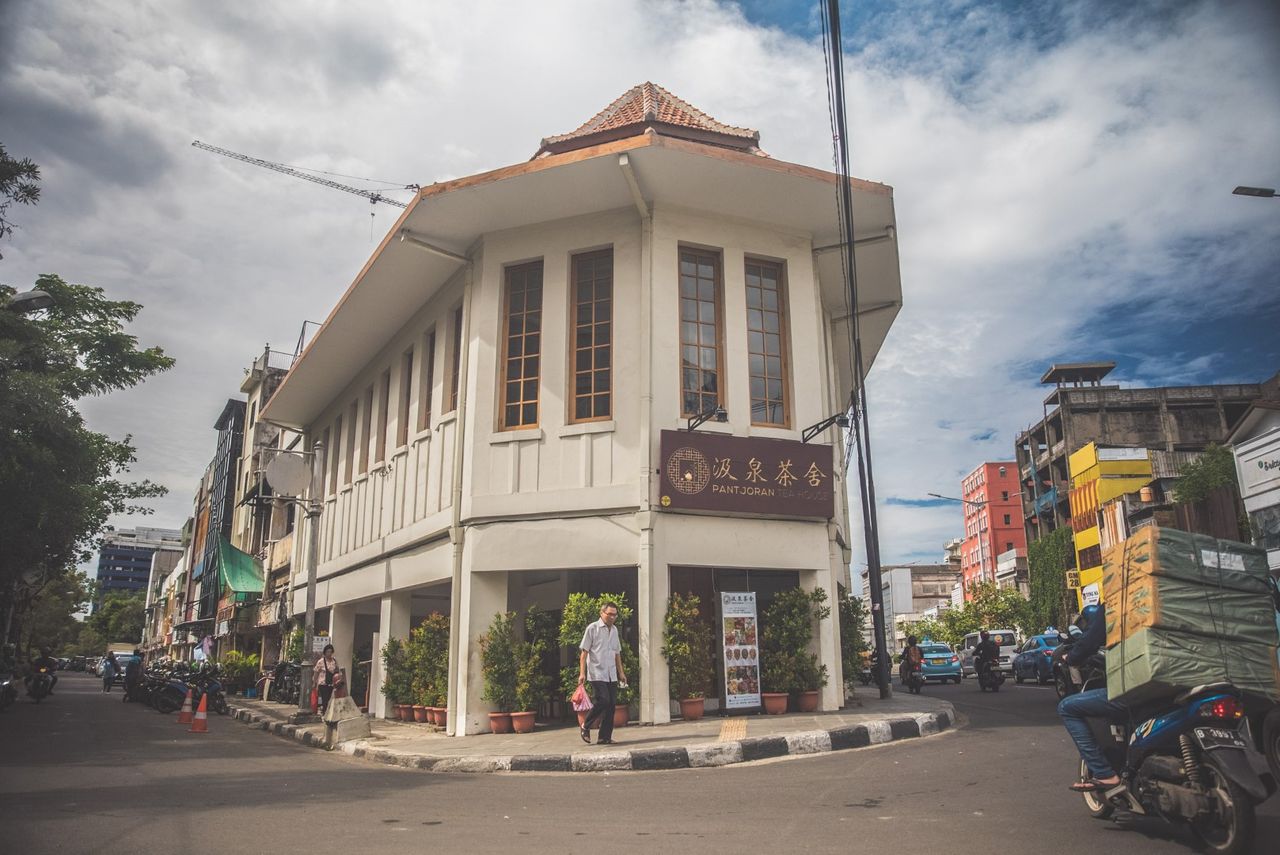
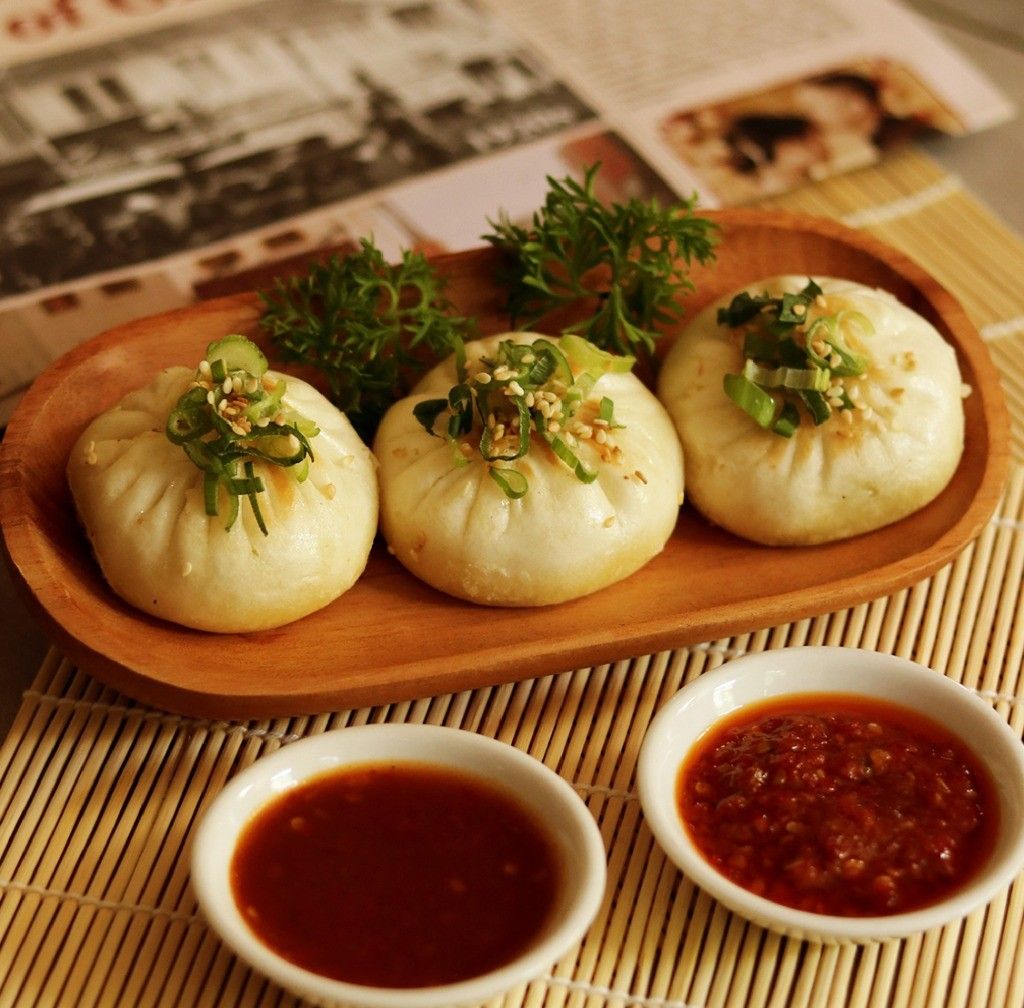
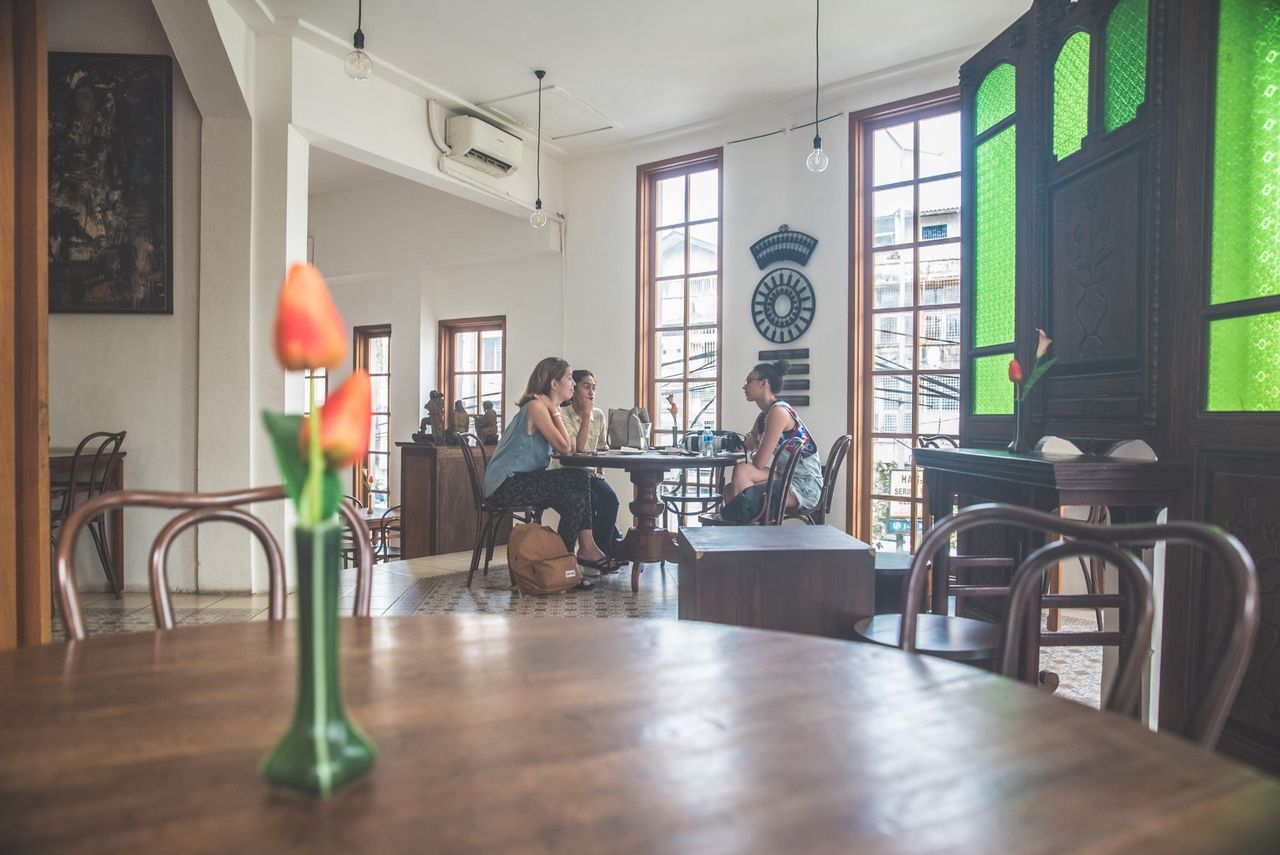
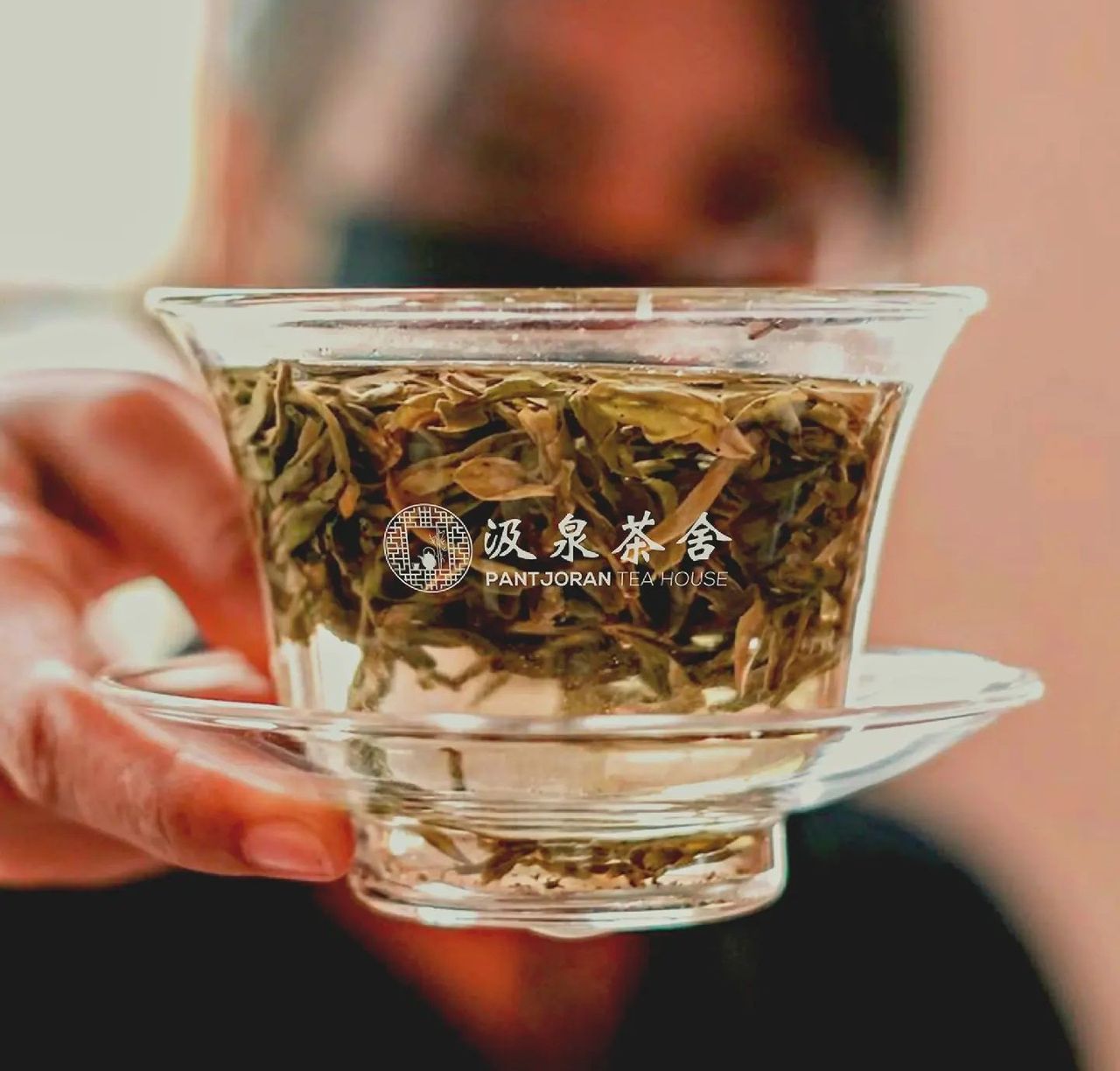
Legacy of Captain Gan Djie
Pantjoran Tea House is the new, elegant, freshly coated face of Jakarta's Chinatown, inspired by the legendary Kapitein der Chinezeen. The captain and his wife welcomed weary travellers and merchants with a cup of tea and much-needed shade on the office porch. Their place became known as a little oasis in the bustle of Glodok.
For many years, the building was a run-down Chinese pharmacy. Its current, revamped appearance is all thanks to investment from Konsorsium Kota Tua Jakarta, a program responsible for revitalising several historic properties in Jakarta's old town.
The captain and his wife welcomed weary travellers and merchants with a cup of tea and much-welcomed shade in the office porch.
Healthy start
On offer is a fine selection of premium Chinese and Indonesian teas served in delicate porcelain bowls. The décor is a tasteful blend of minimalist modern Chinese design and contemporary artworks from the owner's private collection. For a healthy start to your walk, try their chrysanthemum tea (RP. 45.000), a flower-based infusion beverage well-known in East Asia as a medicinal tea.
Molenvliet
Jl. Pancoran was originally called Molenvliet. There used to be a pump station at the corner of Jl. Gadjah Mada. This plant supplied drinking water to the old town and water for the fountains at Taman Fatahillah. Some say that the name Glodok came from the sound that water made when sprouting out; grojok, but the Chinese dialect speakers would pronounce it glodok instead. While Pancoran was said to originate from pancuran, which means 'shower'.
Pantjoran Tea House . Jl. Pancoran no.4 . opens daily 7am-9pm .
+62 21 6905904 . www.pantjoranteahouse.com
Glodok walking trail
Discover these eight culinary gems and more hidden secrets on the iDiscover Glodok Walking Map, a handcrafted digital iternirary and illustrated map designed by Astrid Prasetianti - available from Konsorsium Kota Tua or as a free download here ->
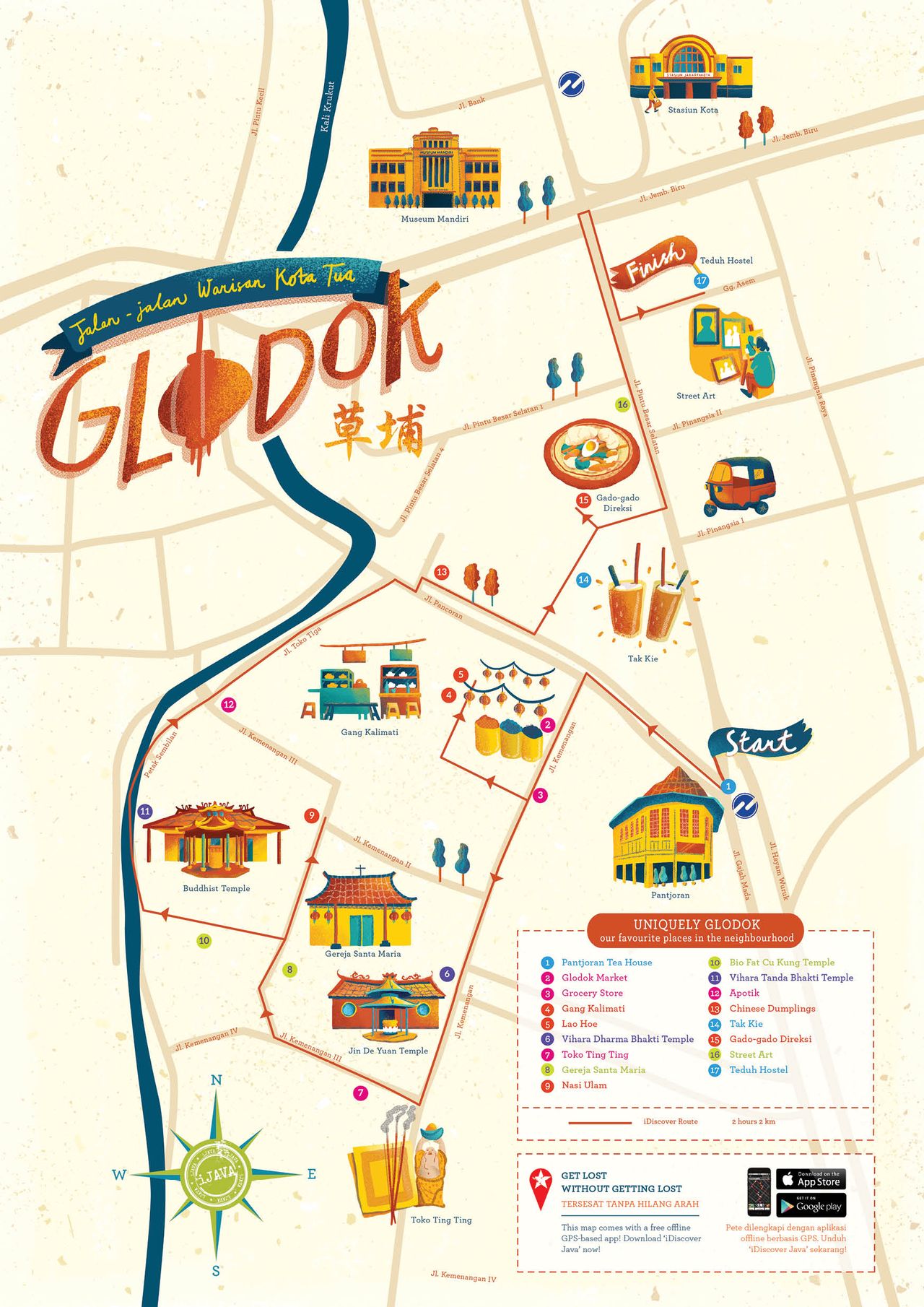
Credits
Created by

Powered by
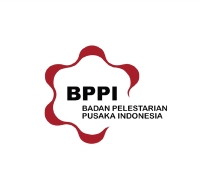
Designed by

About
Konsorsium Kota Tua Konsorsium Kota Tua
Investing in buildings of the past to create a better future of Jakarta Old Town. Konsorsium yang berfokus dalam revitalisasi dan pemanfaatan bangunan-bangunan cagar budaya serta pemberdayaan komunitas di Kota Tua Jakarta.
@kotatuajakarta.idIndonesian Heritage Trust (BPPI) Badan Pelestarian Pusaka Indonesia (BPPI)
Jakarta based NGO promoting heritage conservation in Indonesia. Lembaga swadaya masyarakat yang berpusat di Jakarta bergerak di bidang pelestarian di Indonesia.
www.facebook.com/indonesianheritageAstrid Prasetianti Astrid Prasetianti
Astrid Prasetianti’s imaginative, colourful illustrations and photographic work are like little pieces of art that are guaranteed to brighten your day. Astrid Prasetianti memberi sentuhan imajinasi penuh warna di setiap illustrasi dan fotografi yang dibuatnya, seakan karya-karyanya menjanjikan untuk membuat hari kita bersinar cerah.
@astridpr